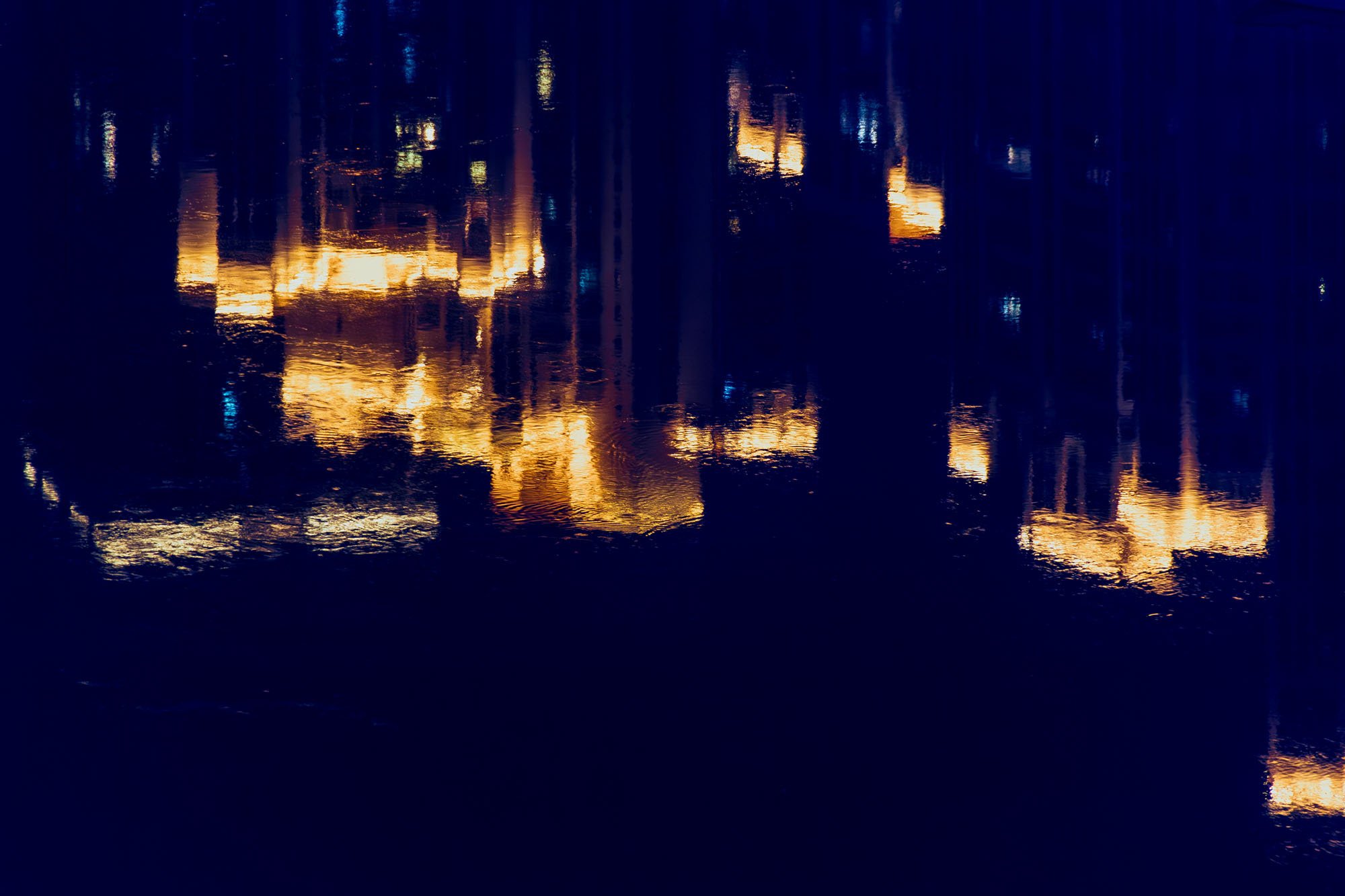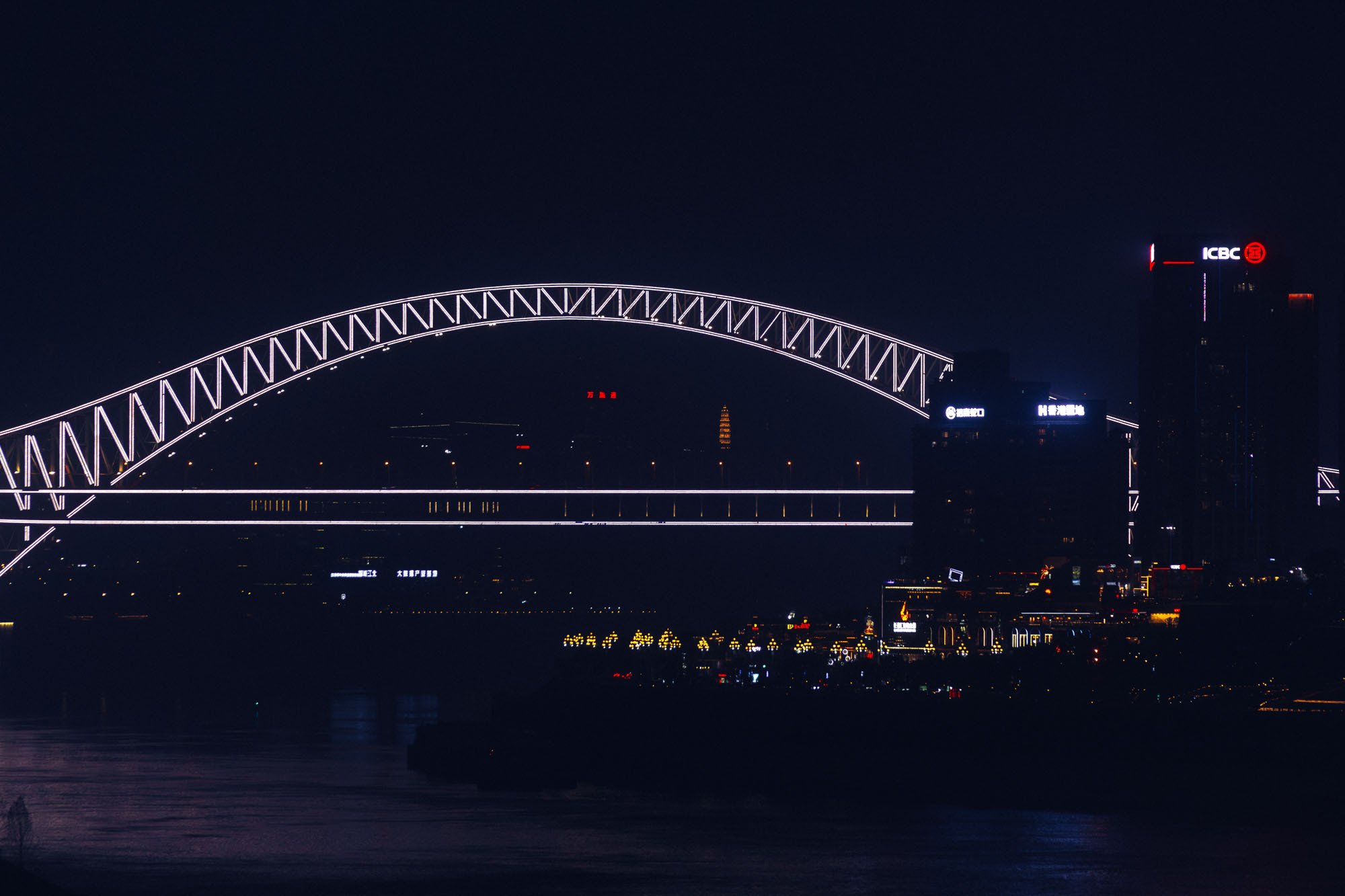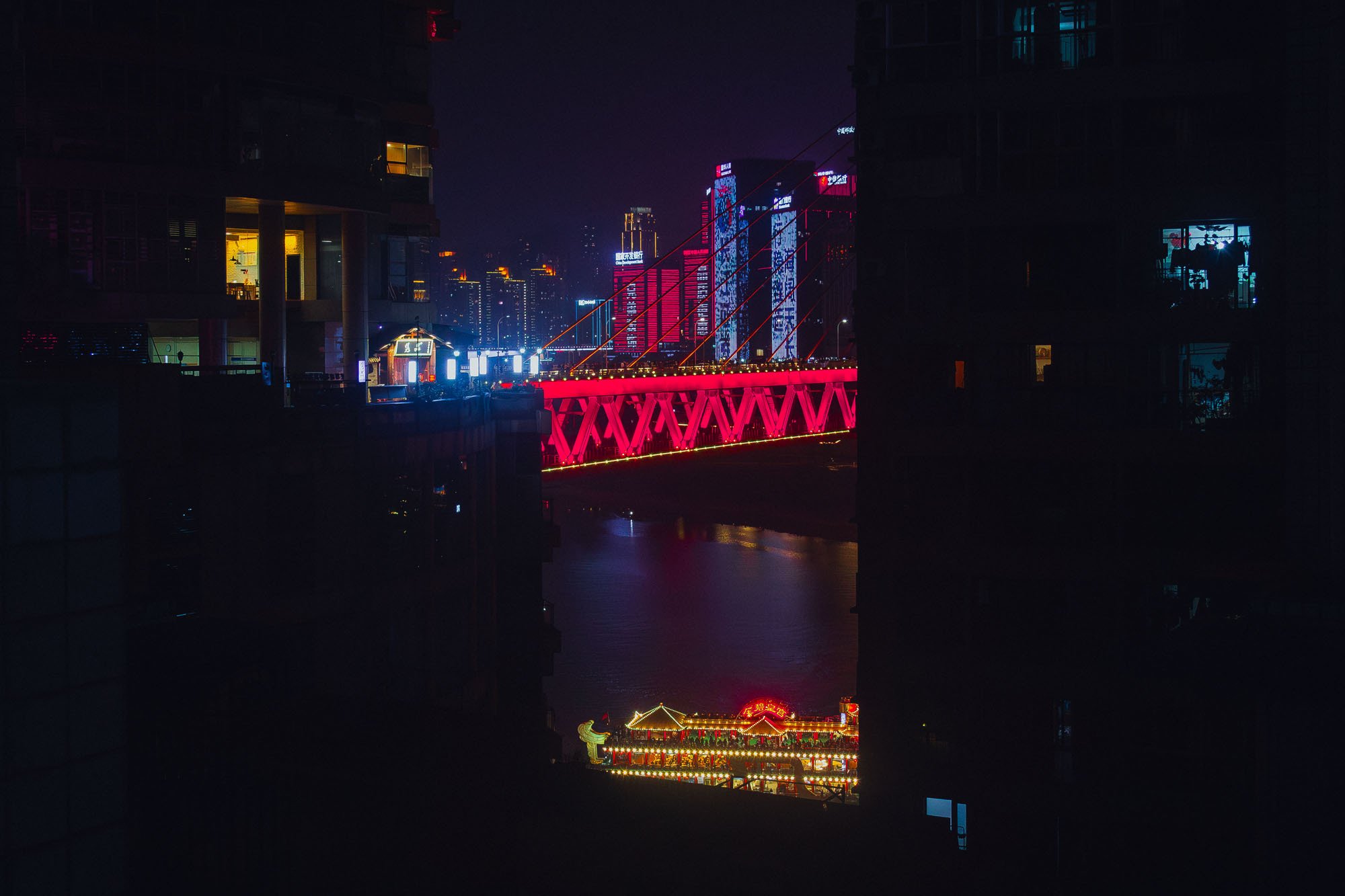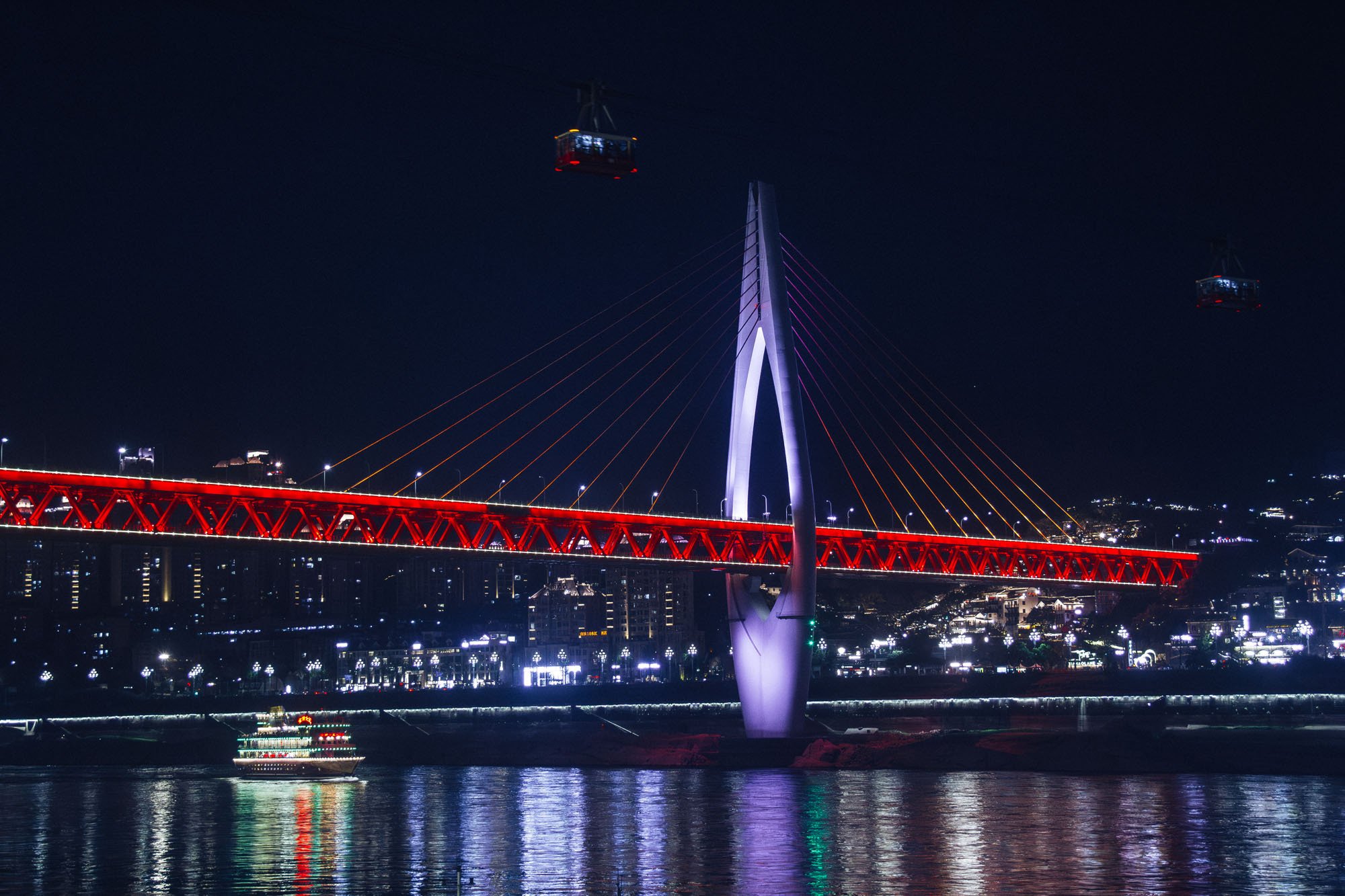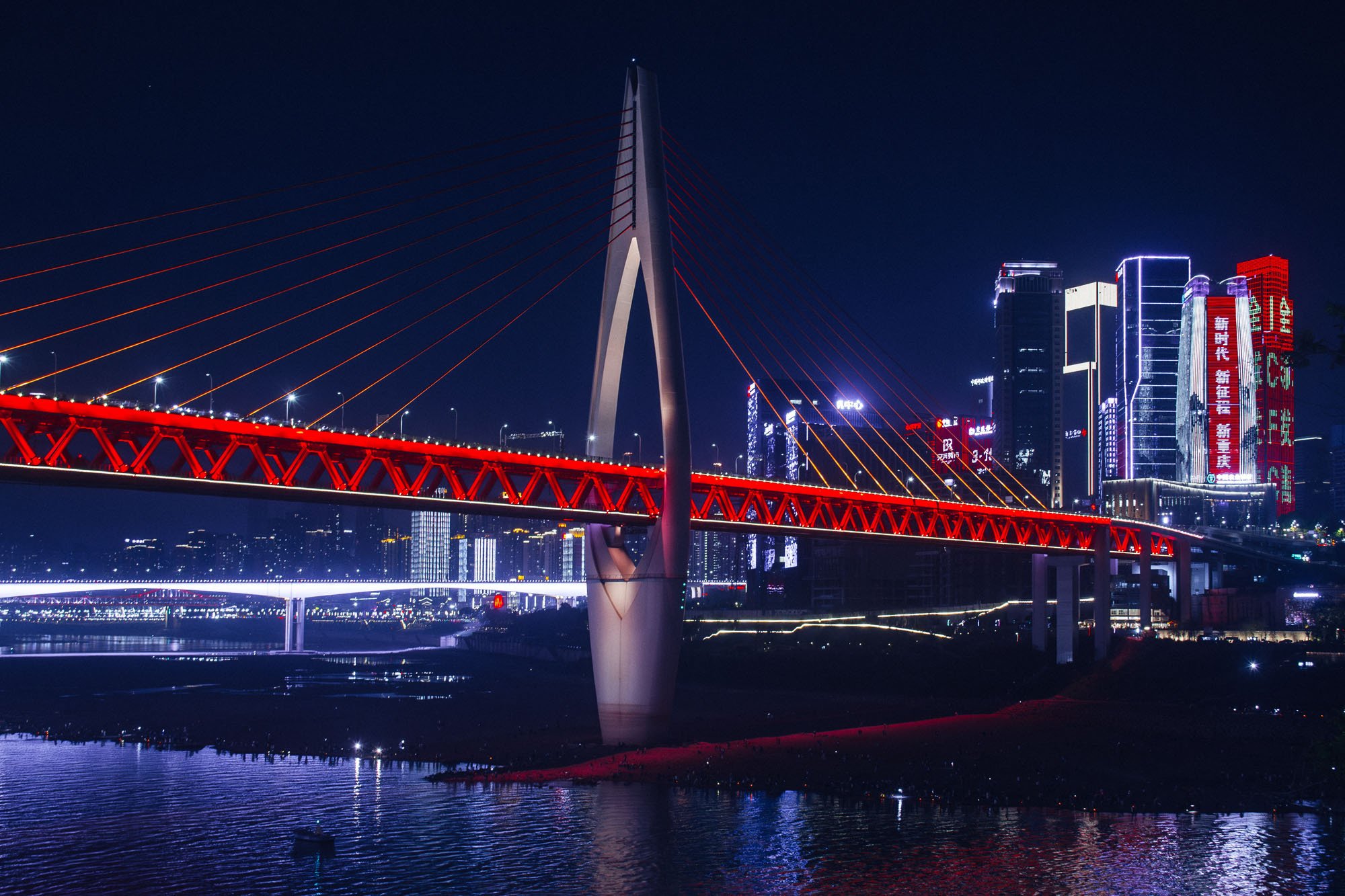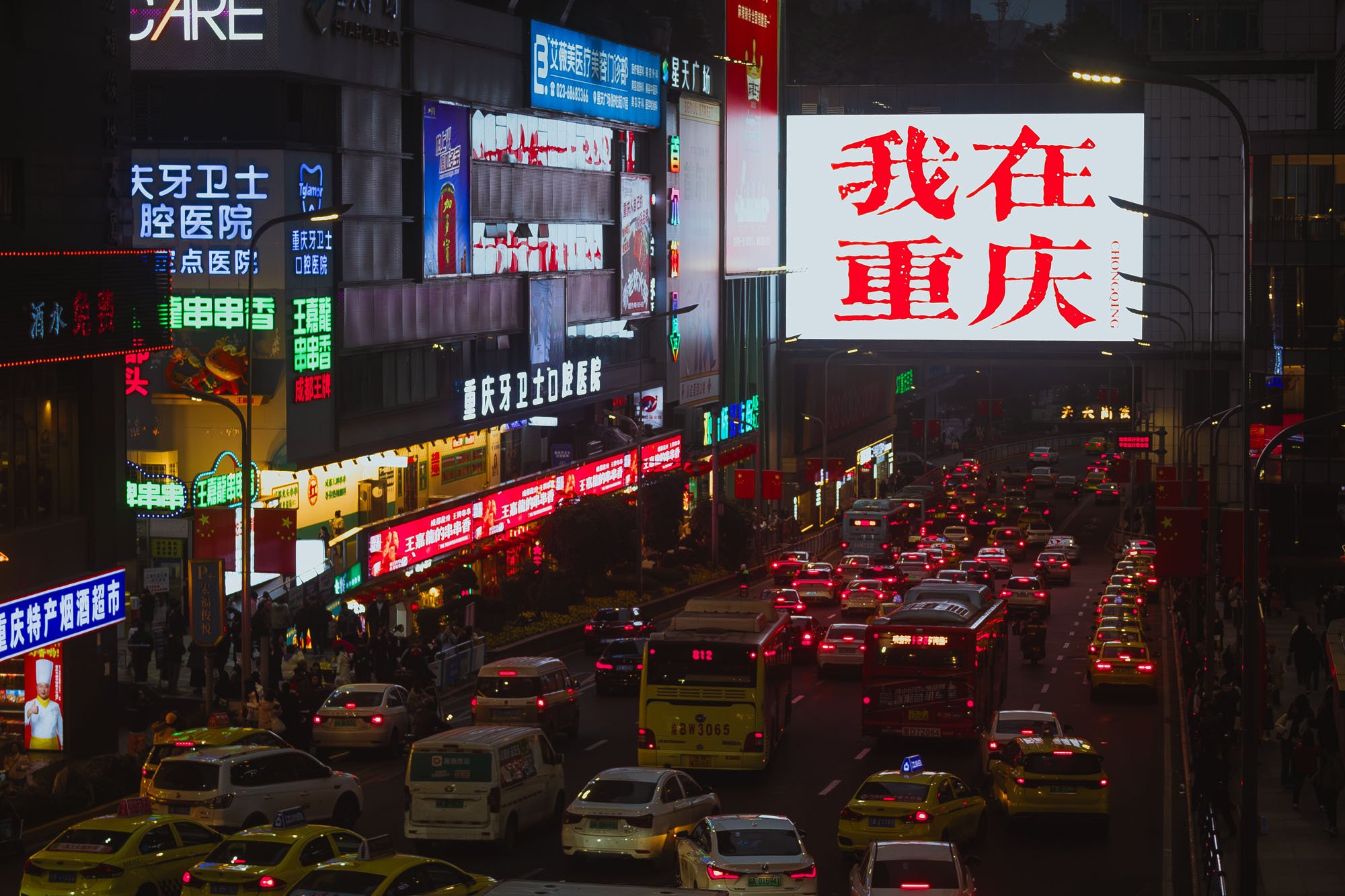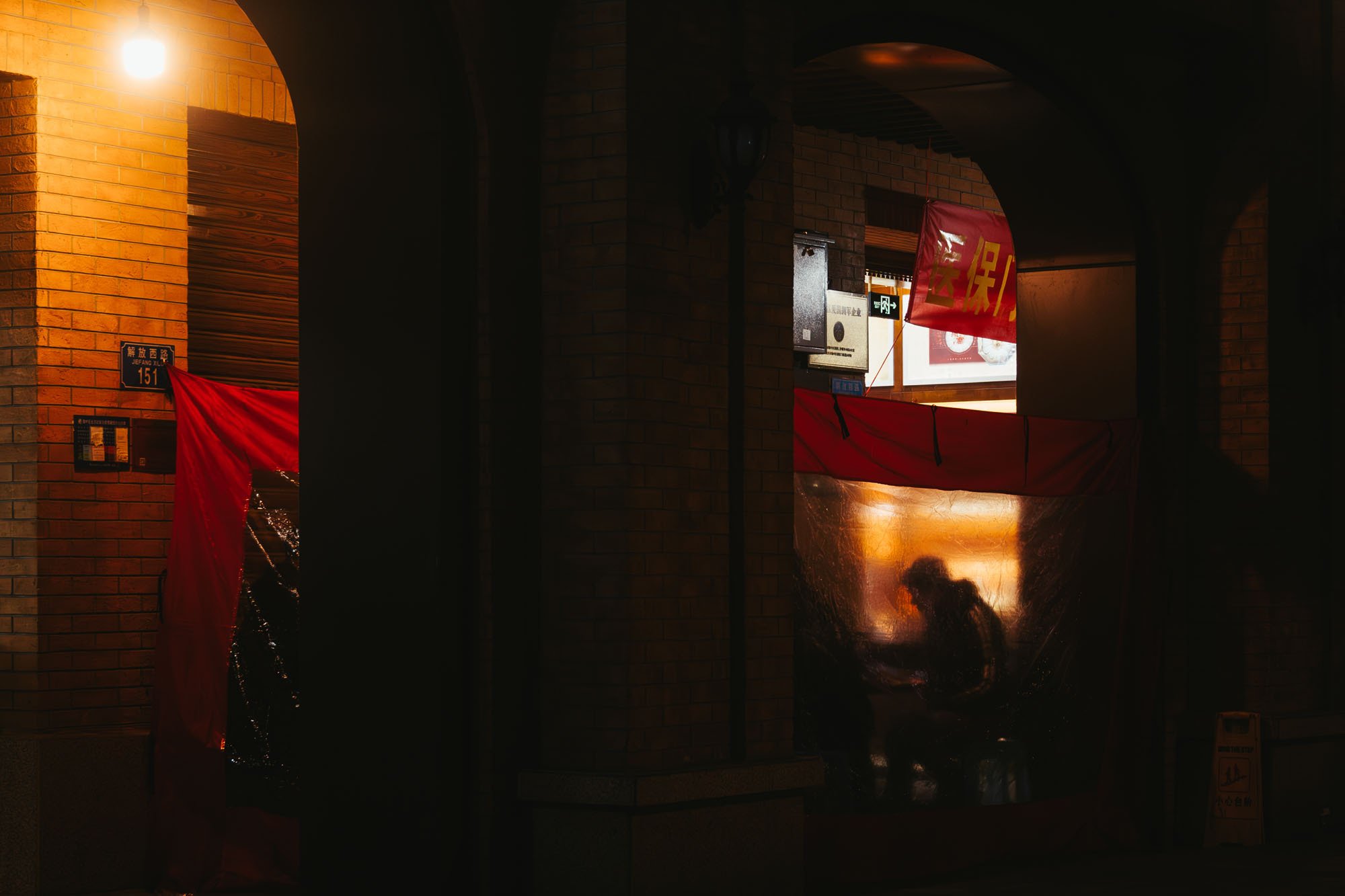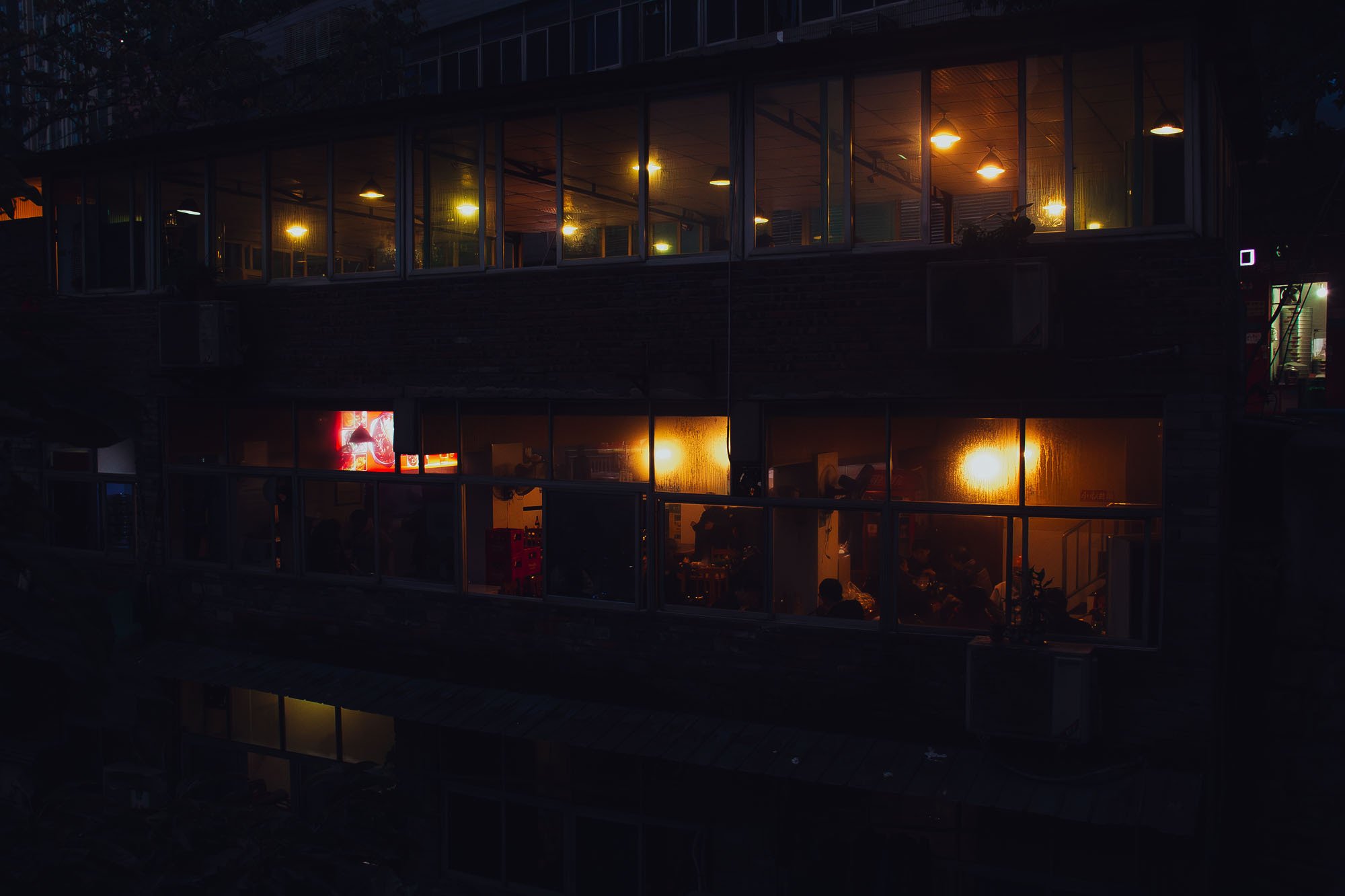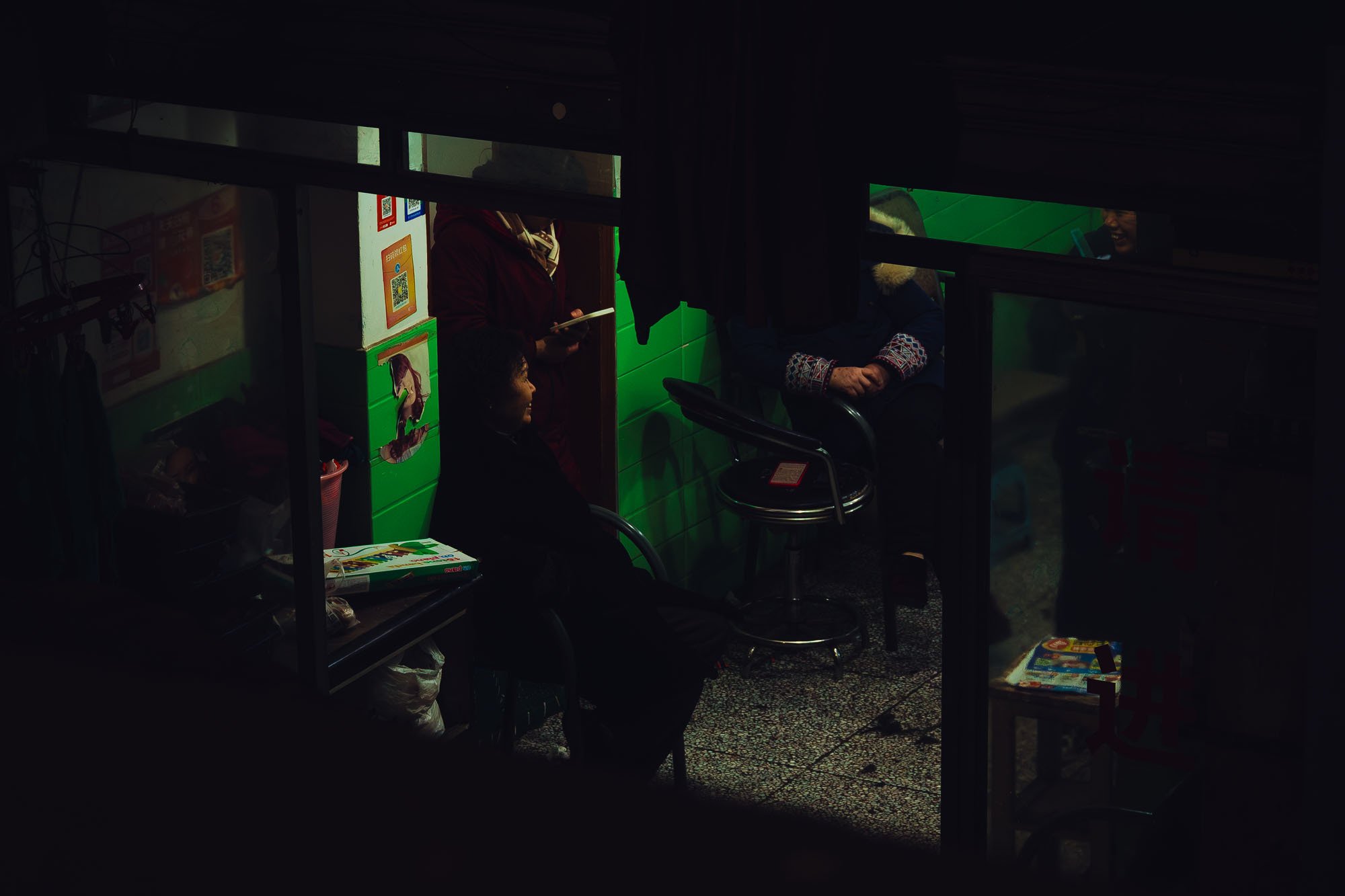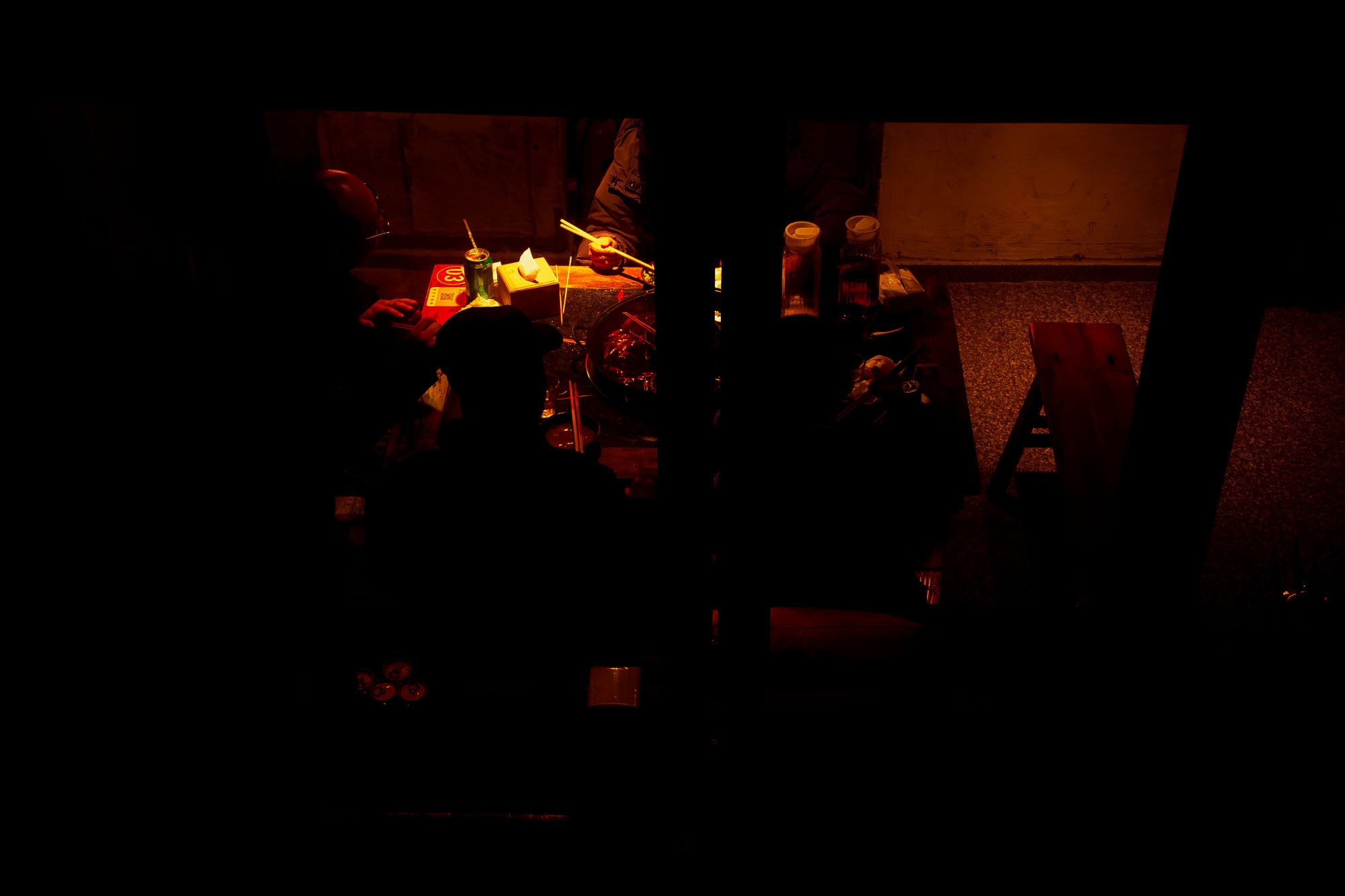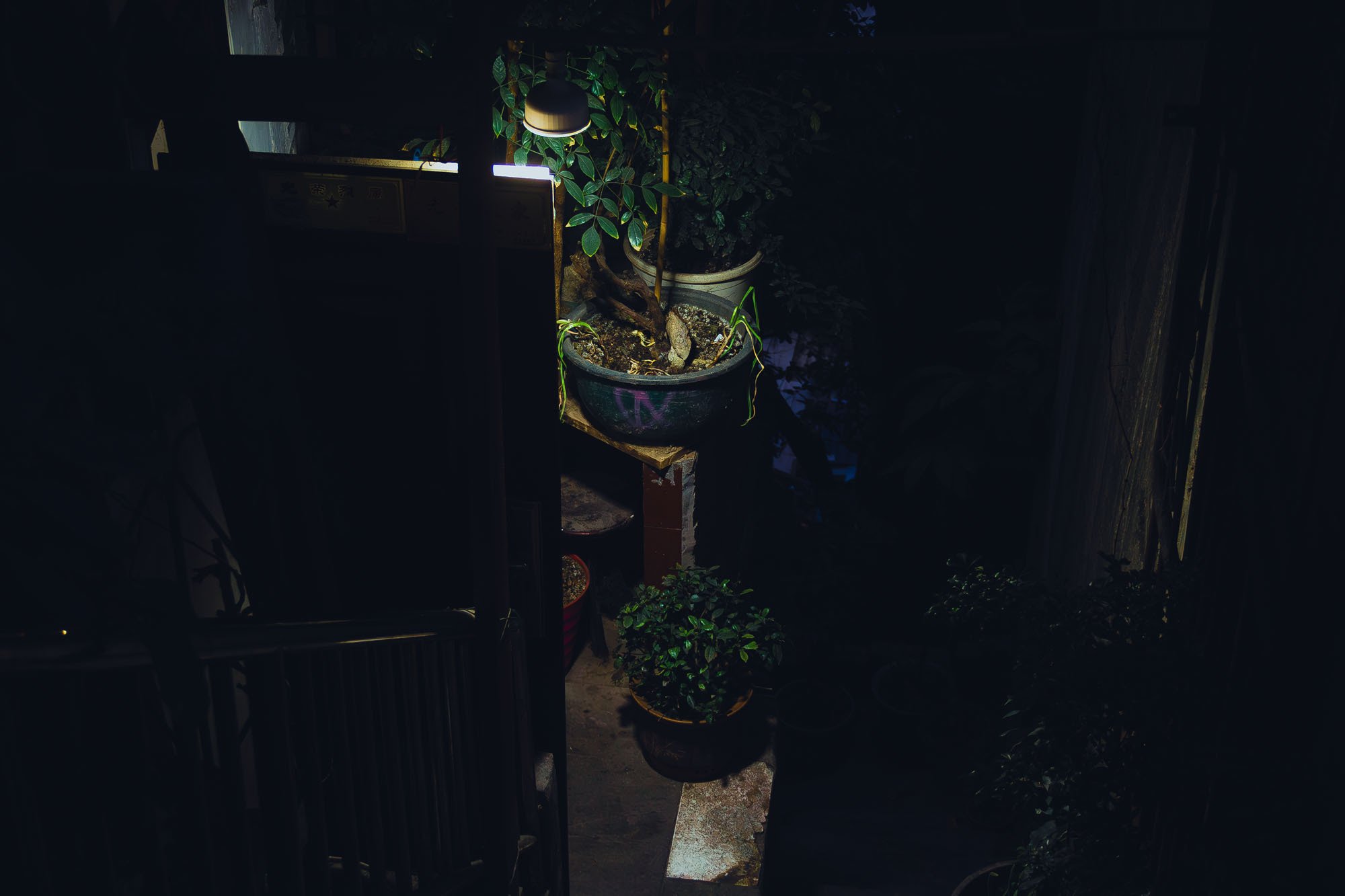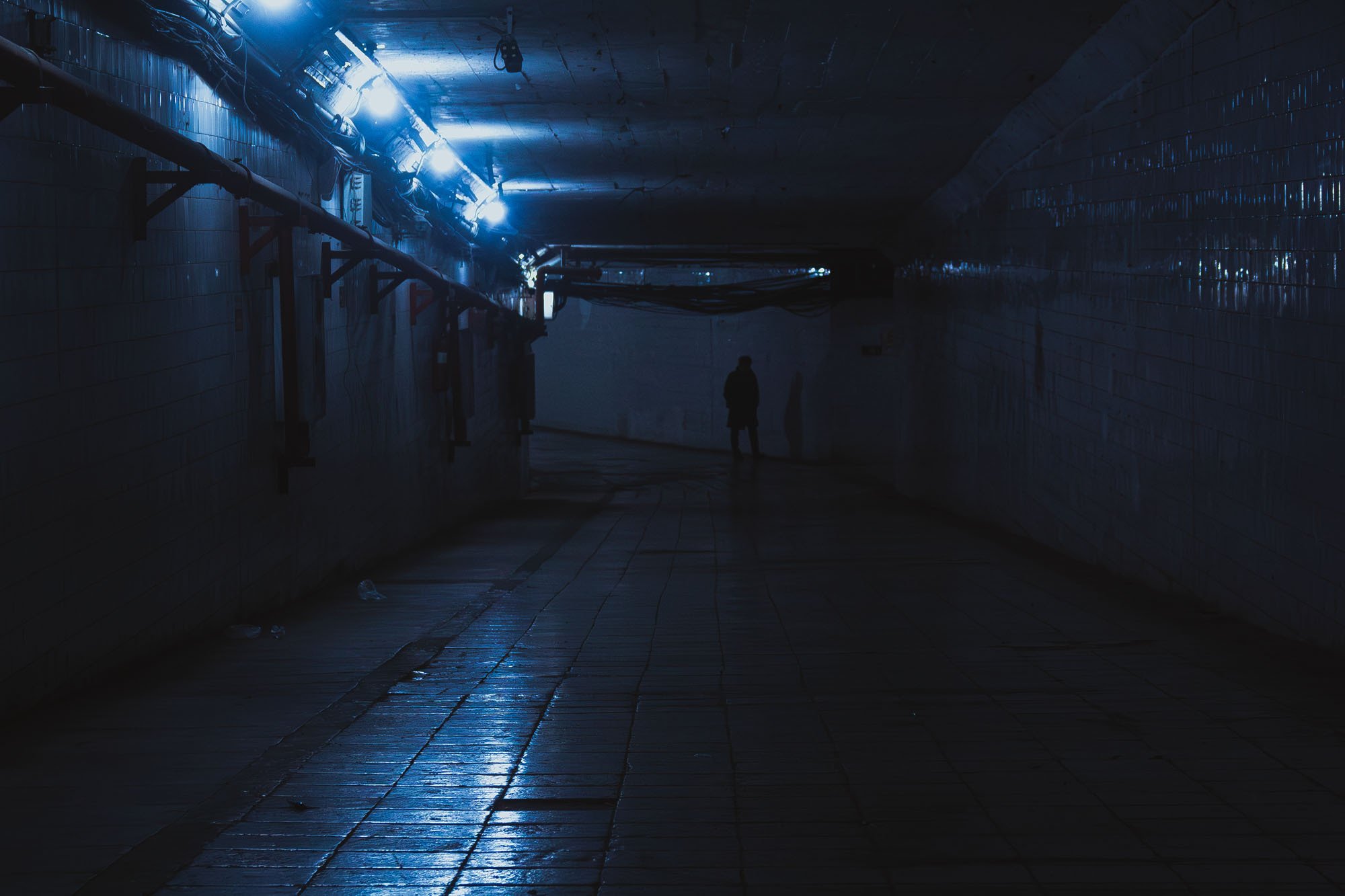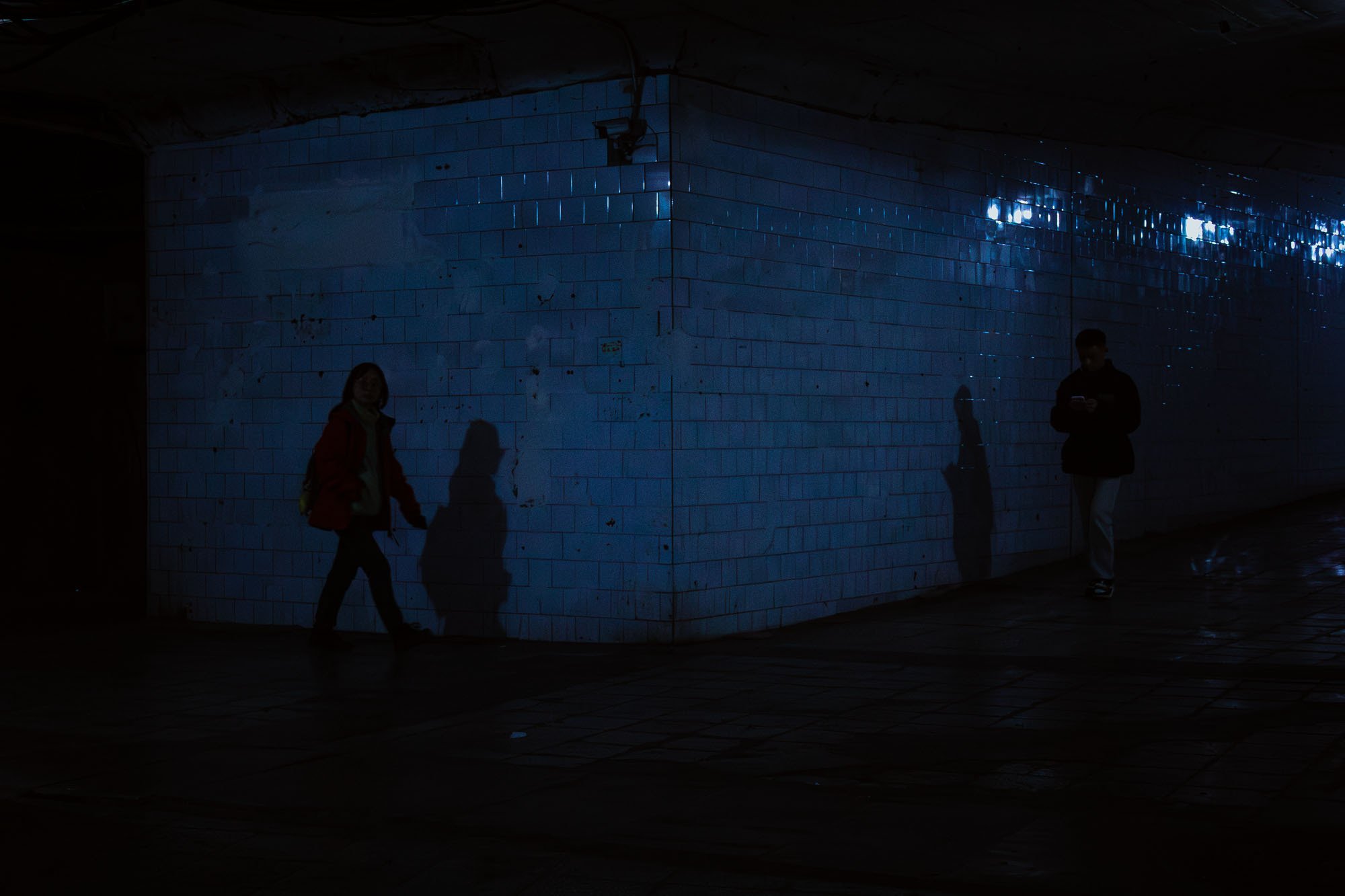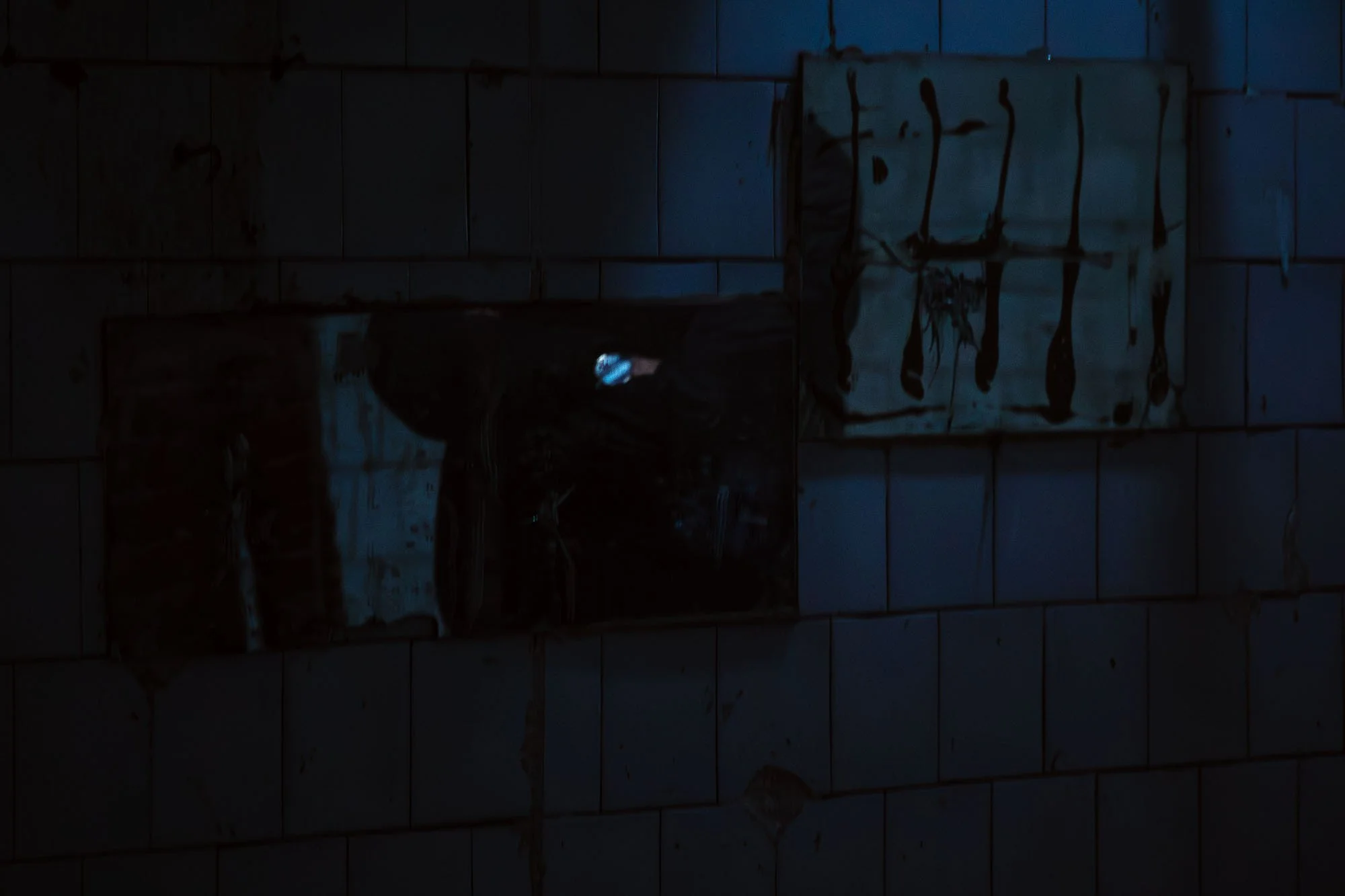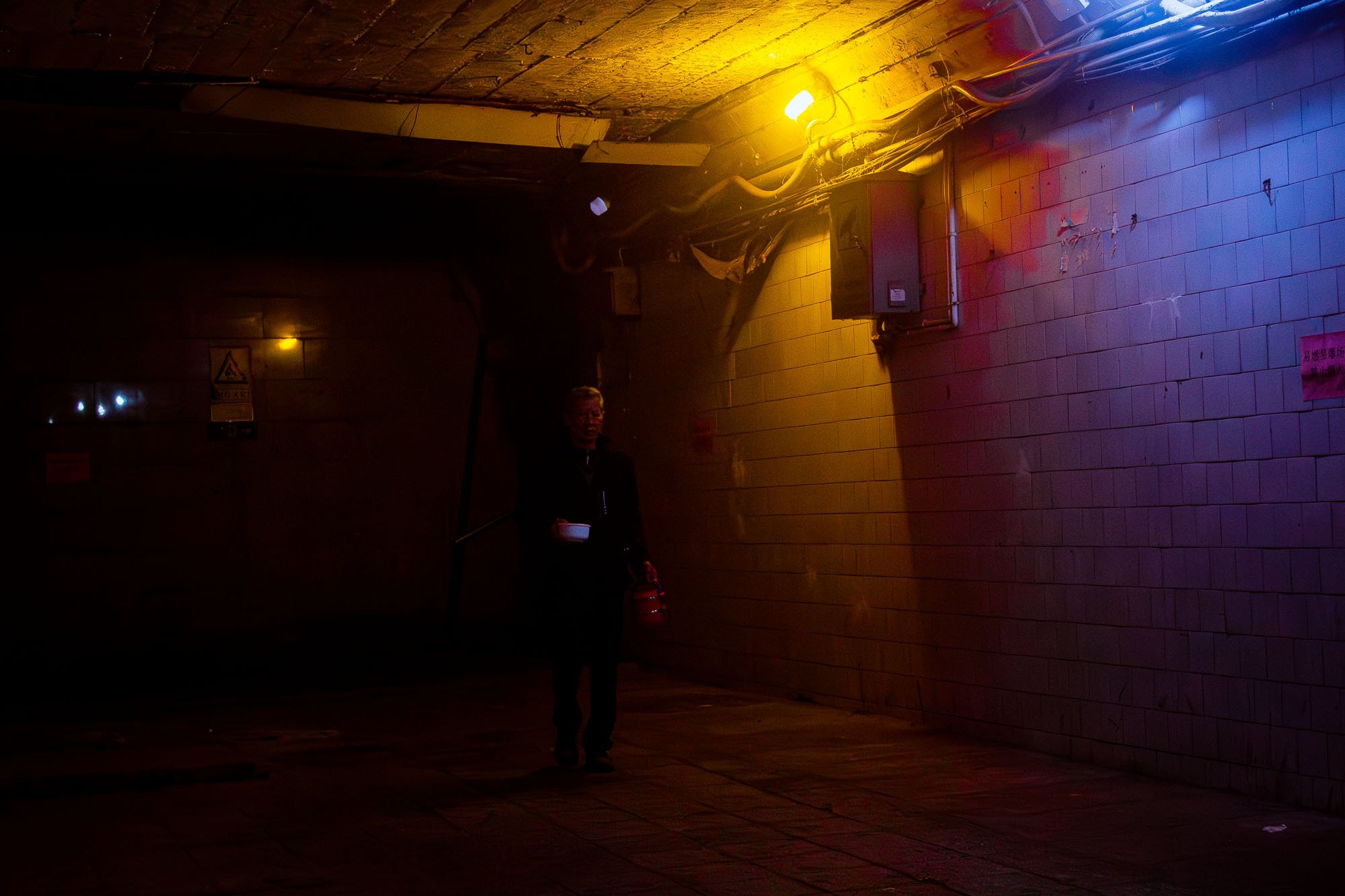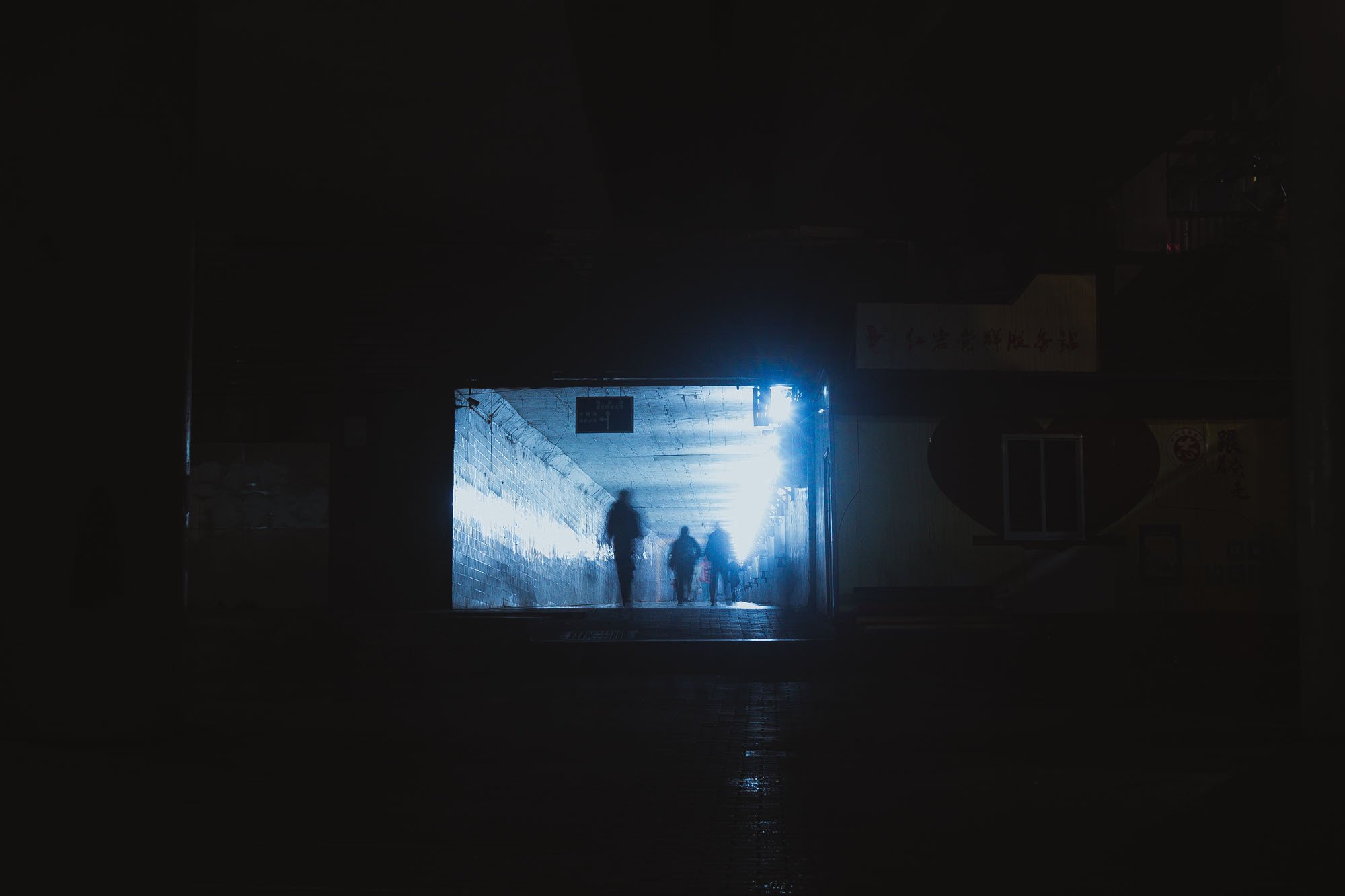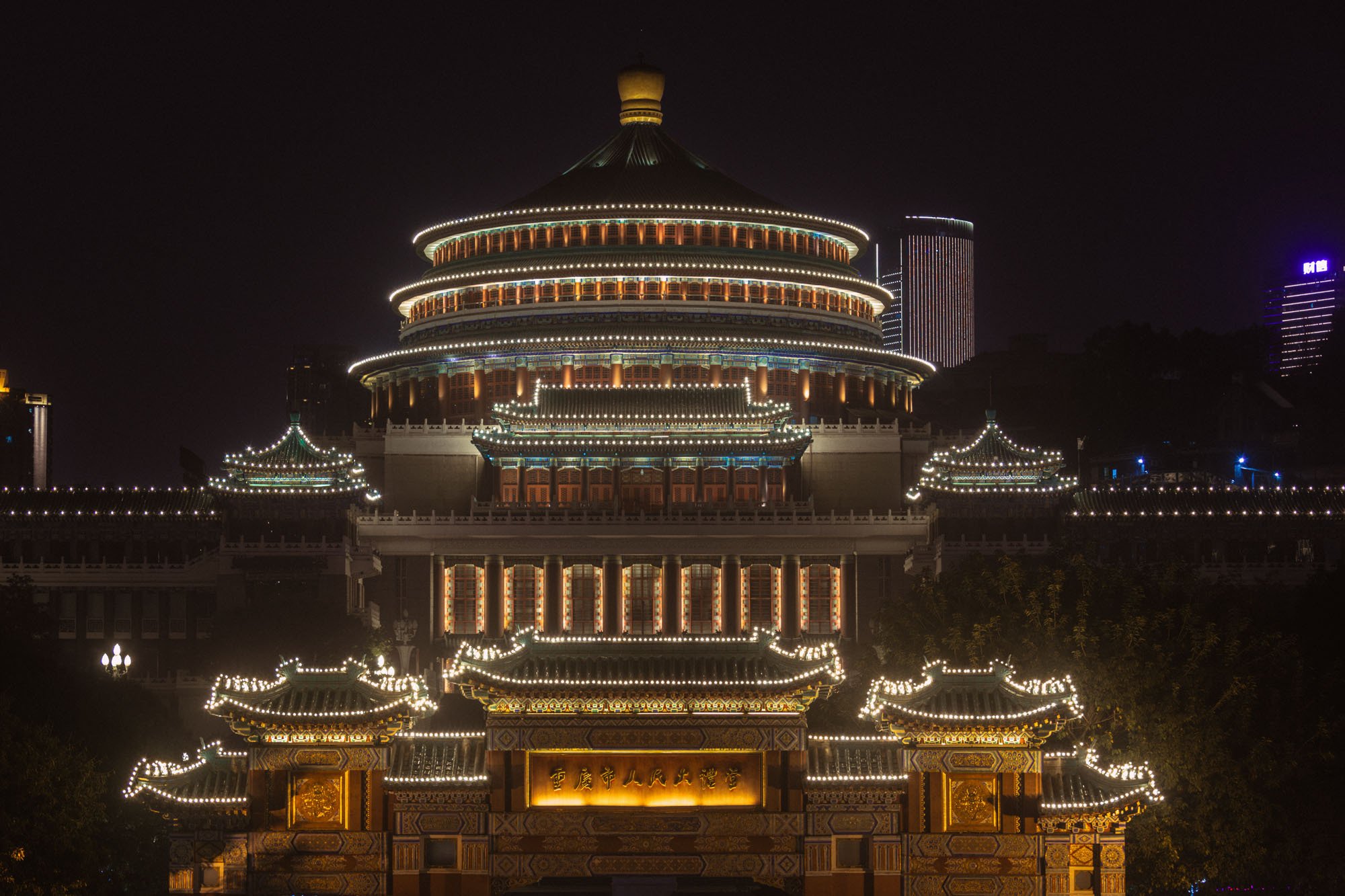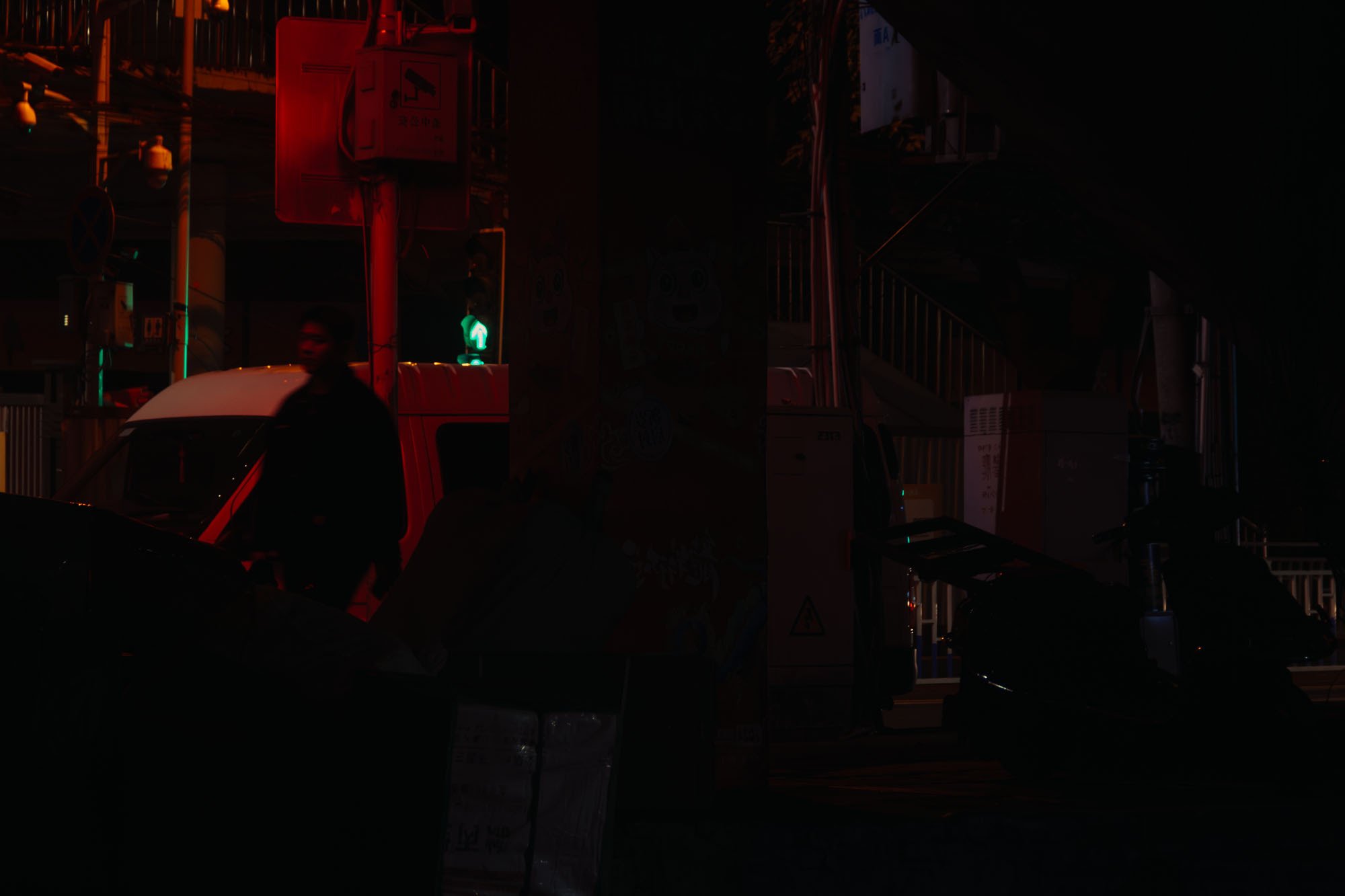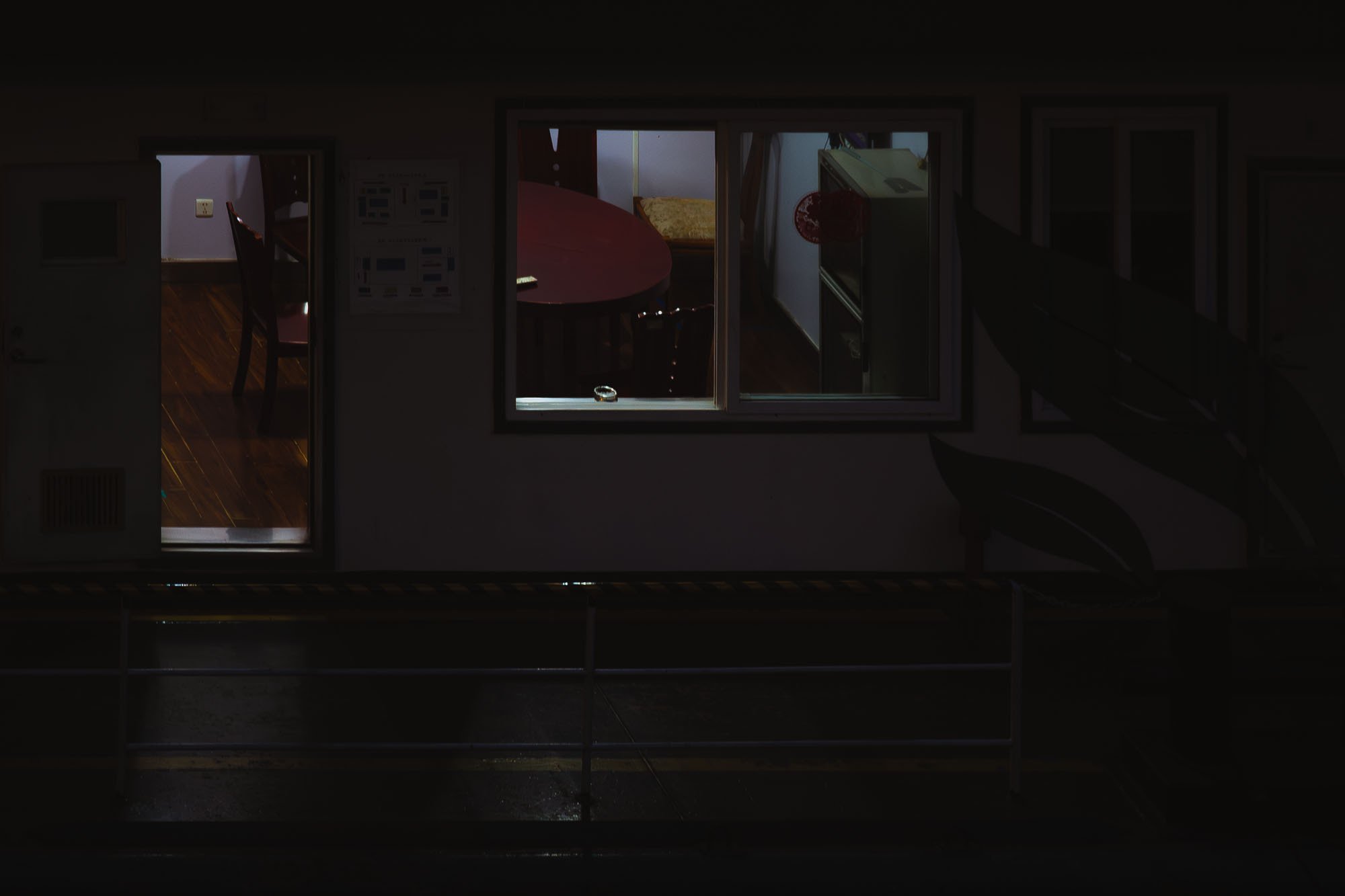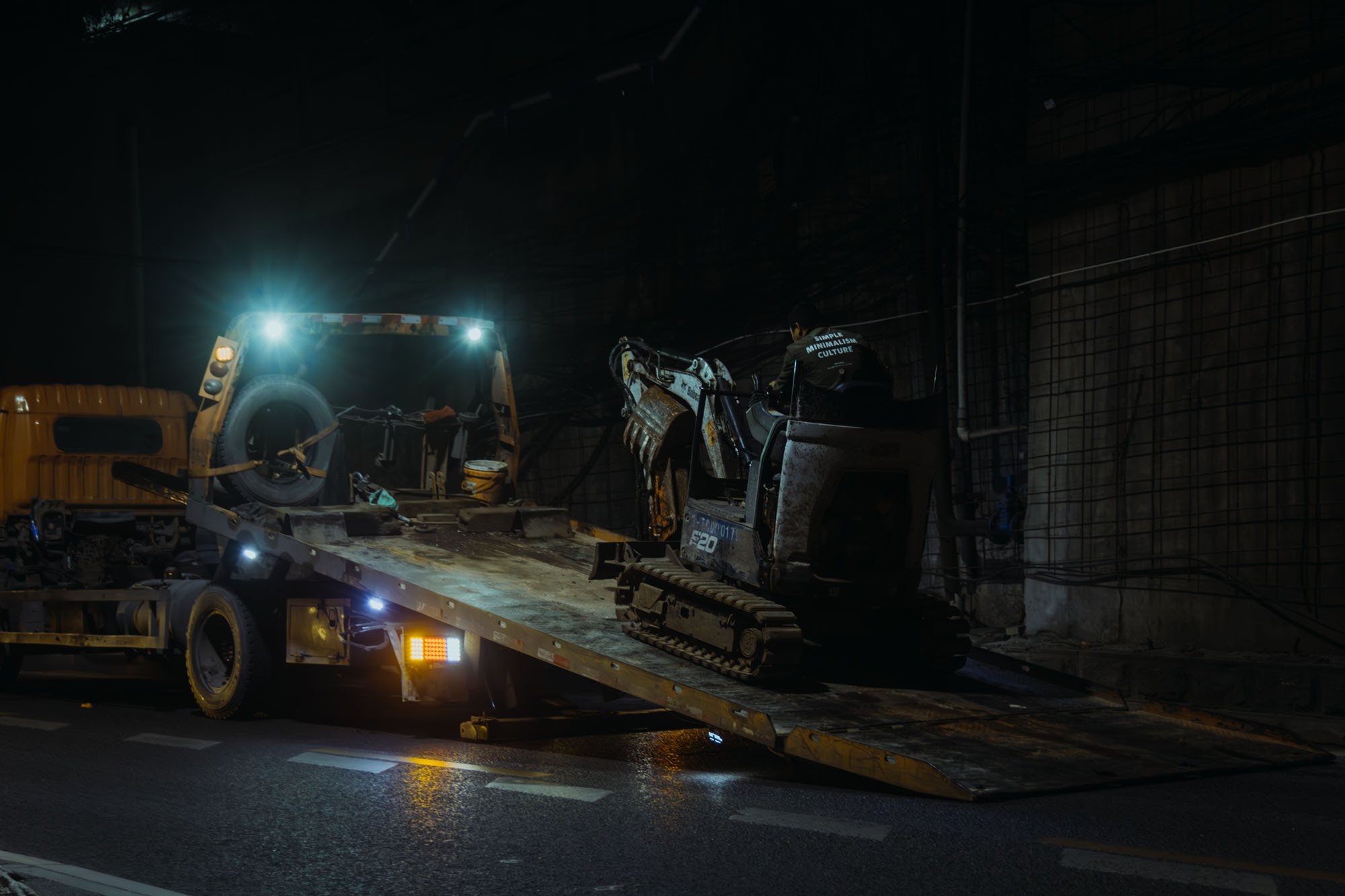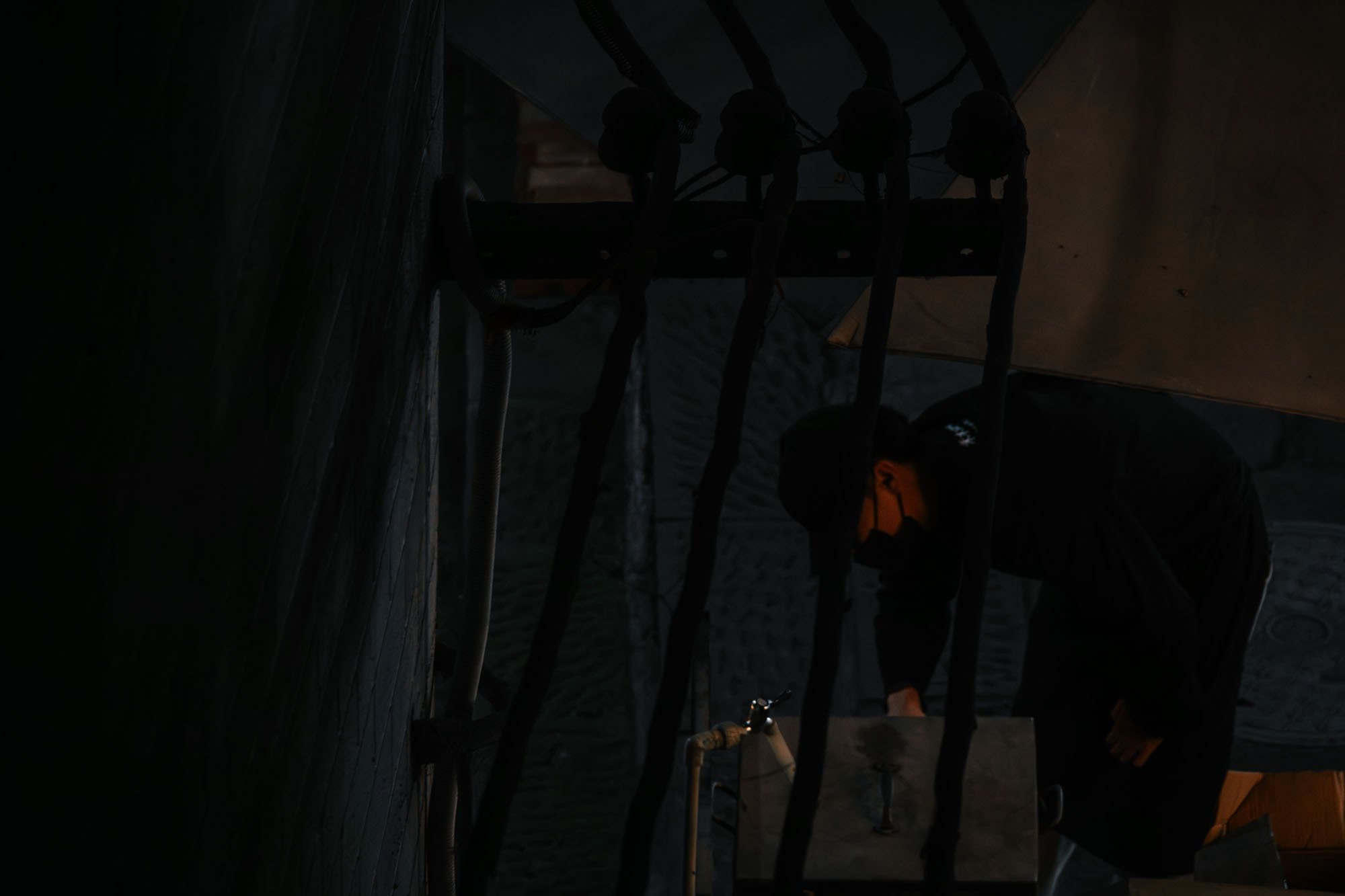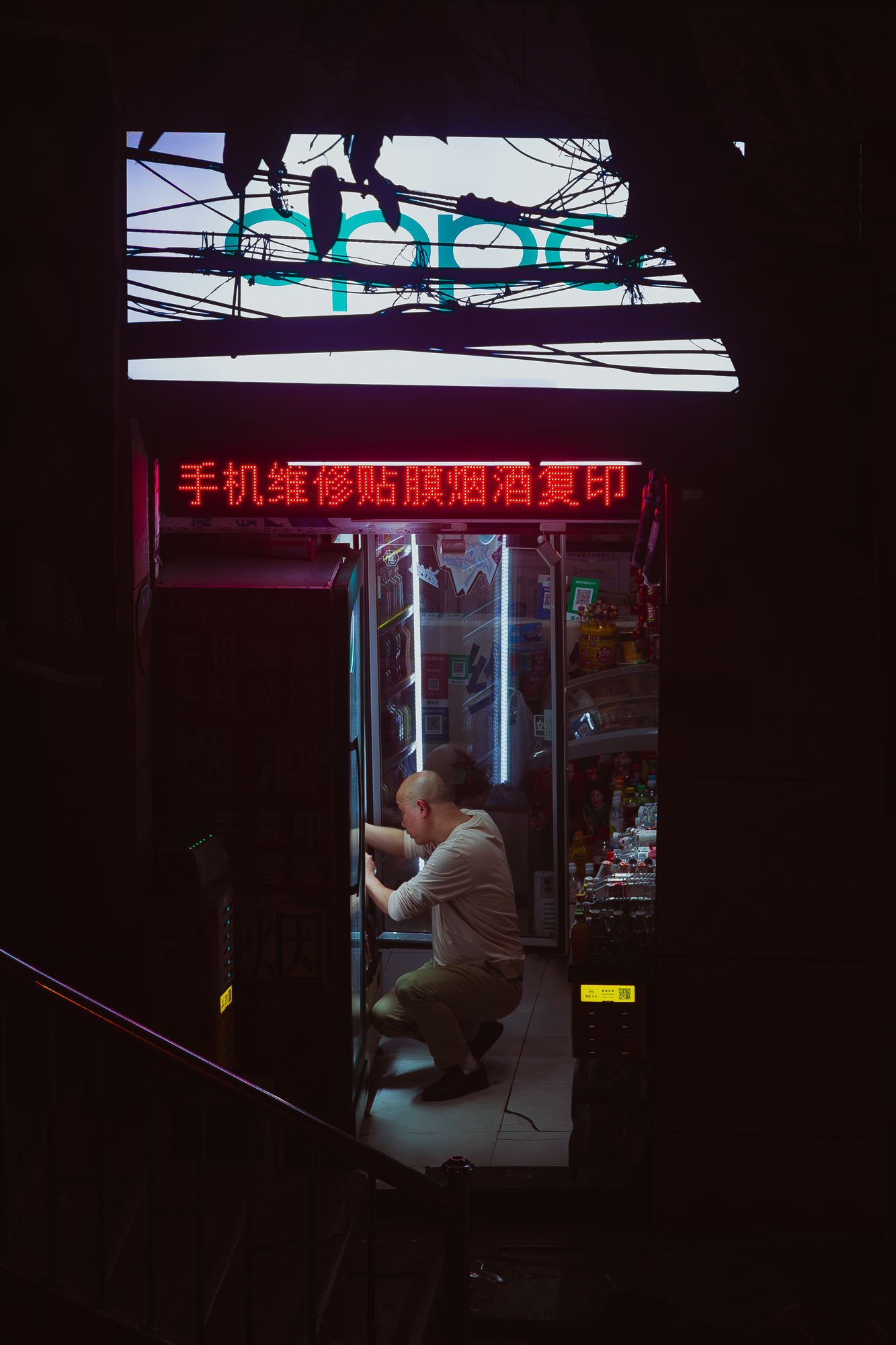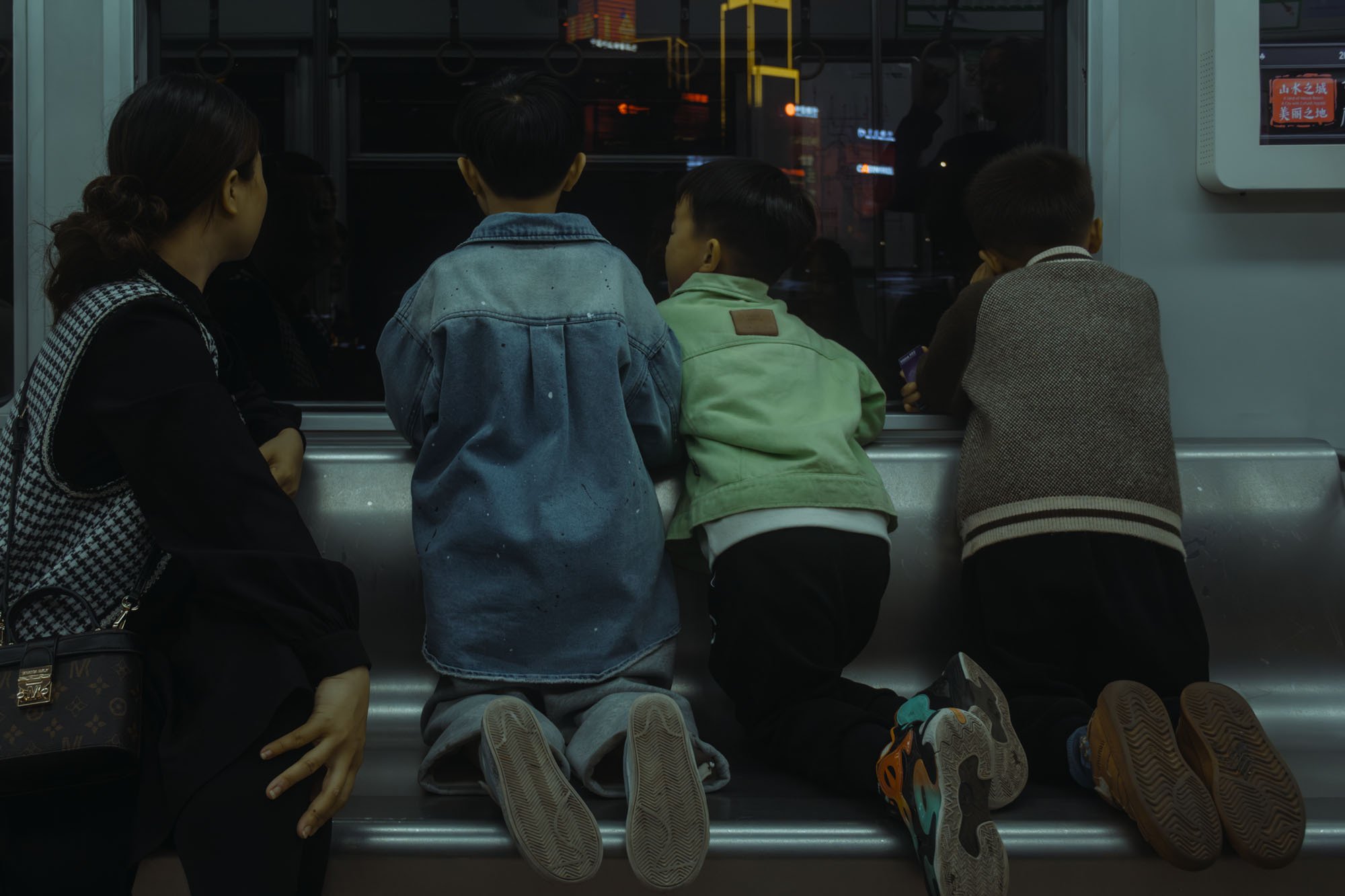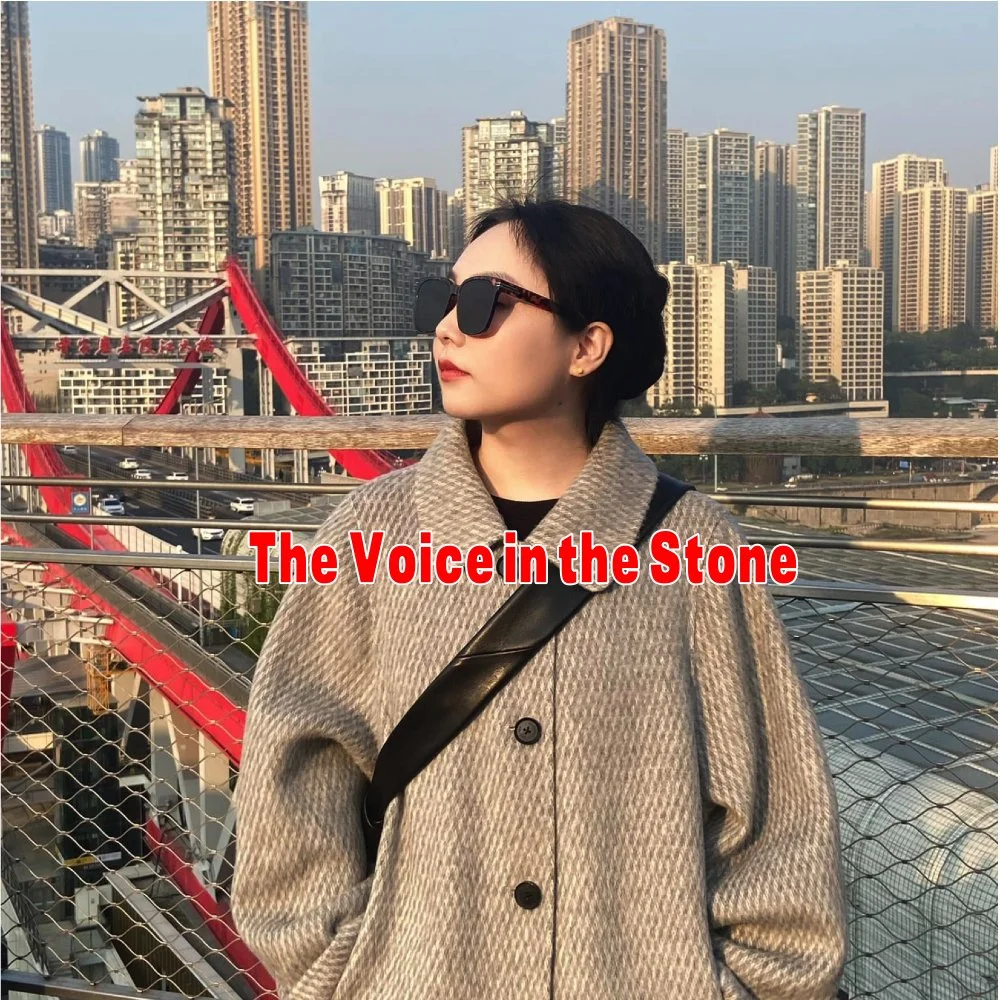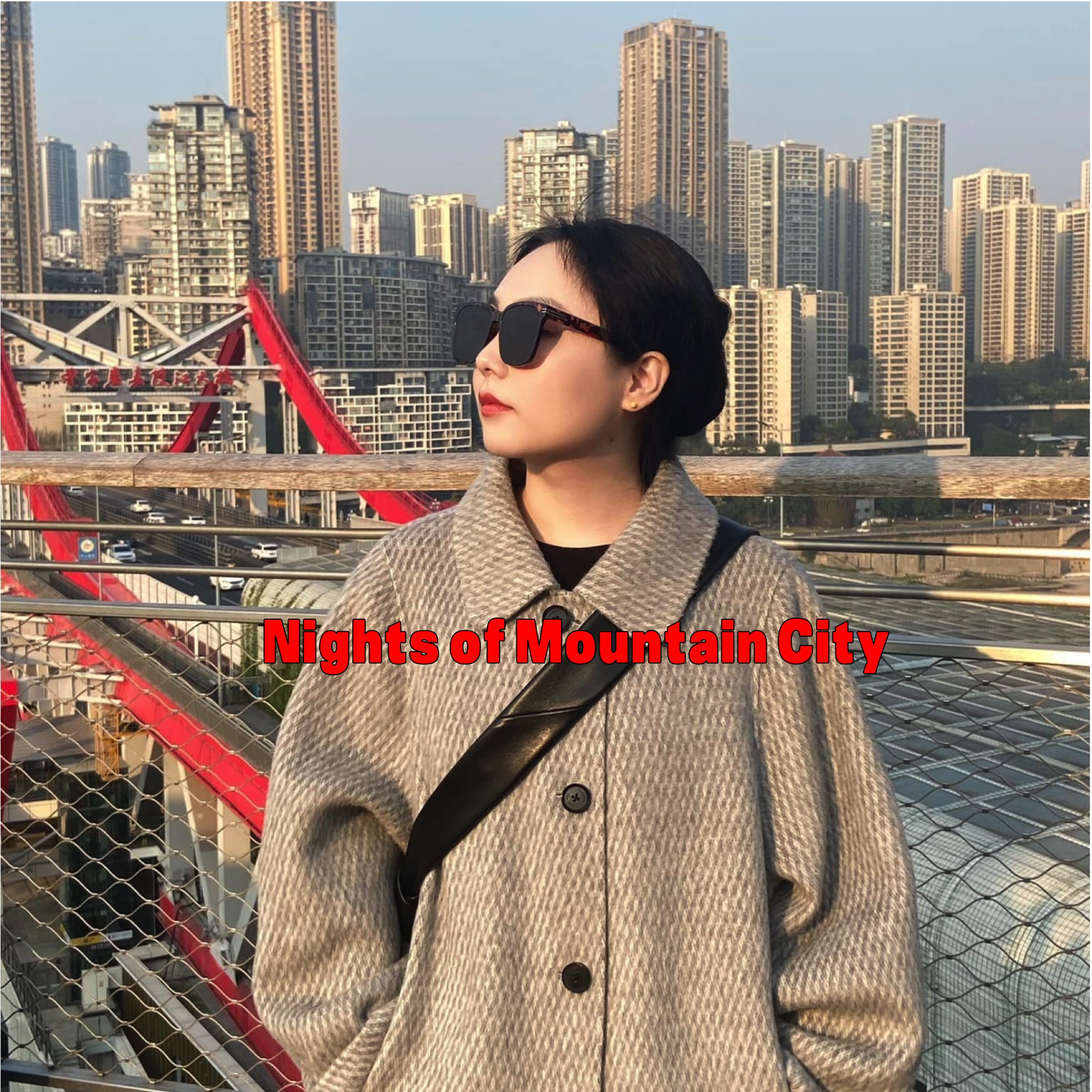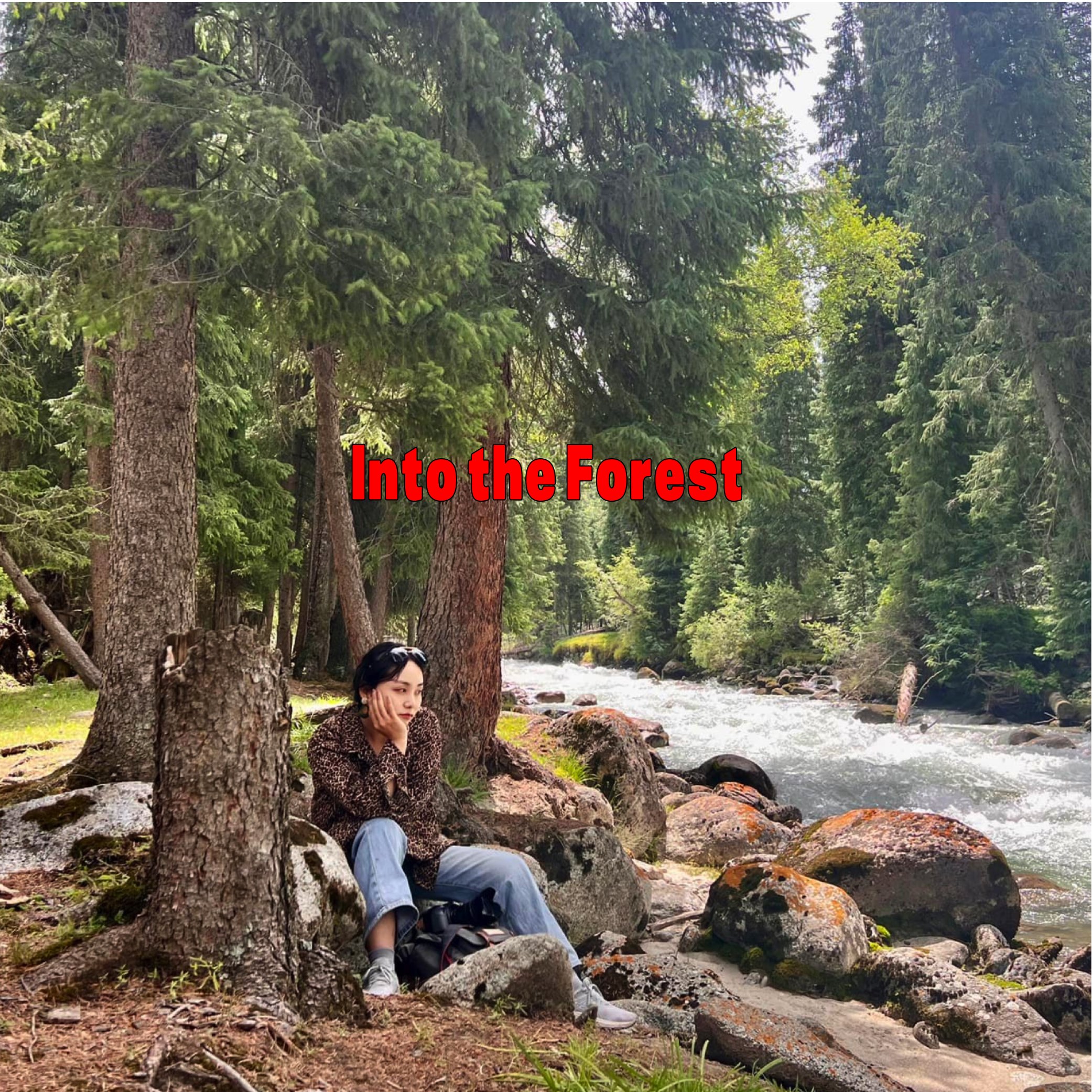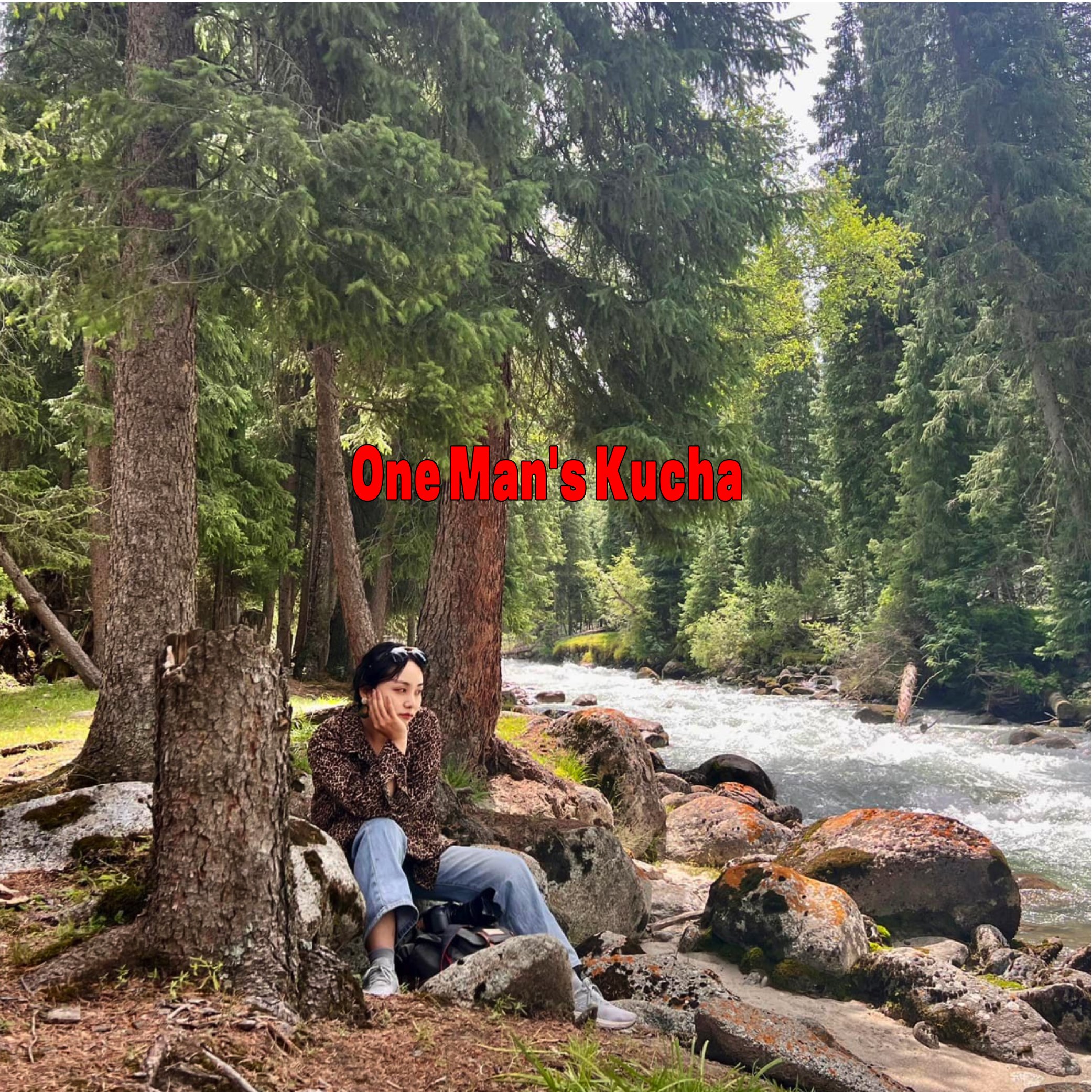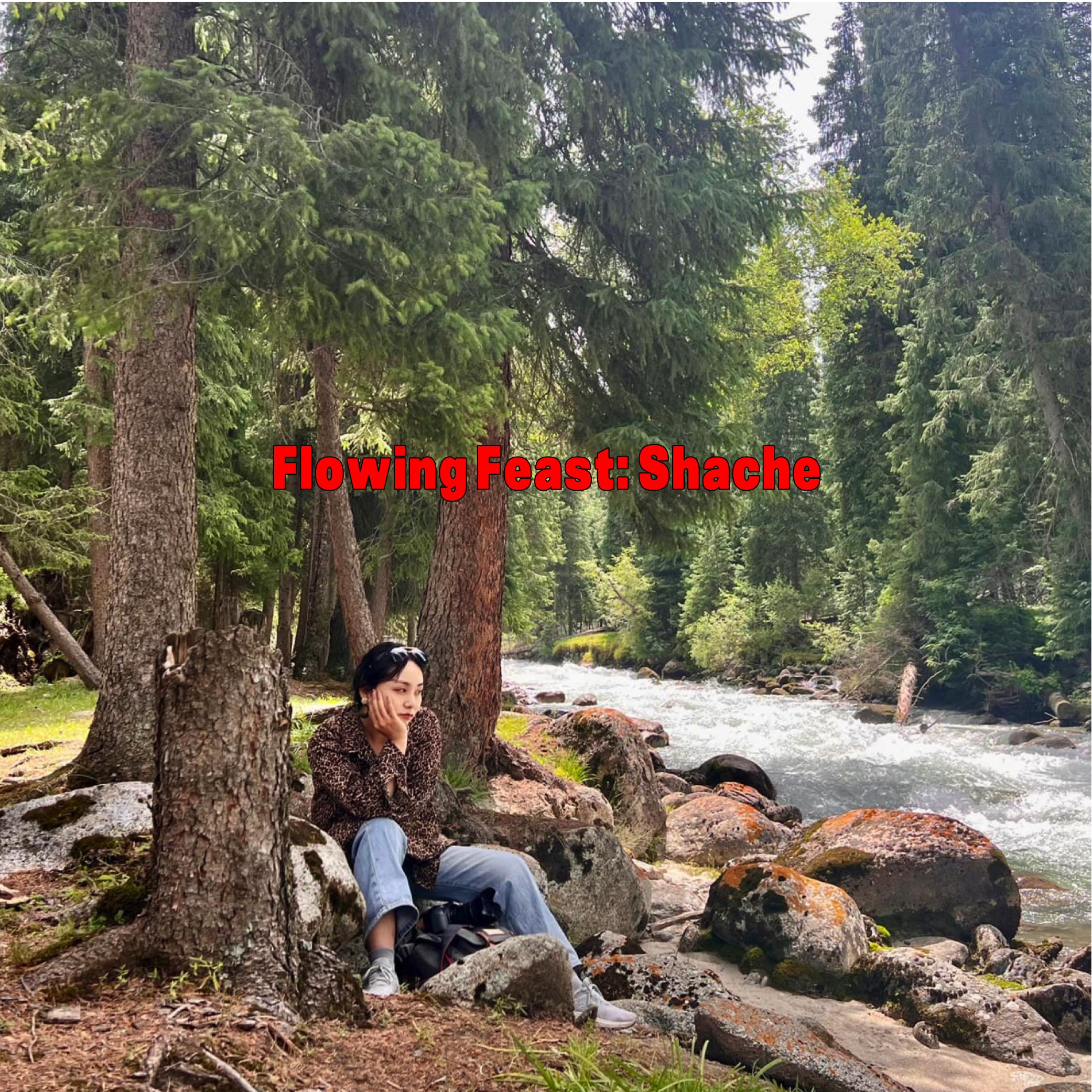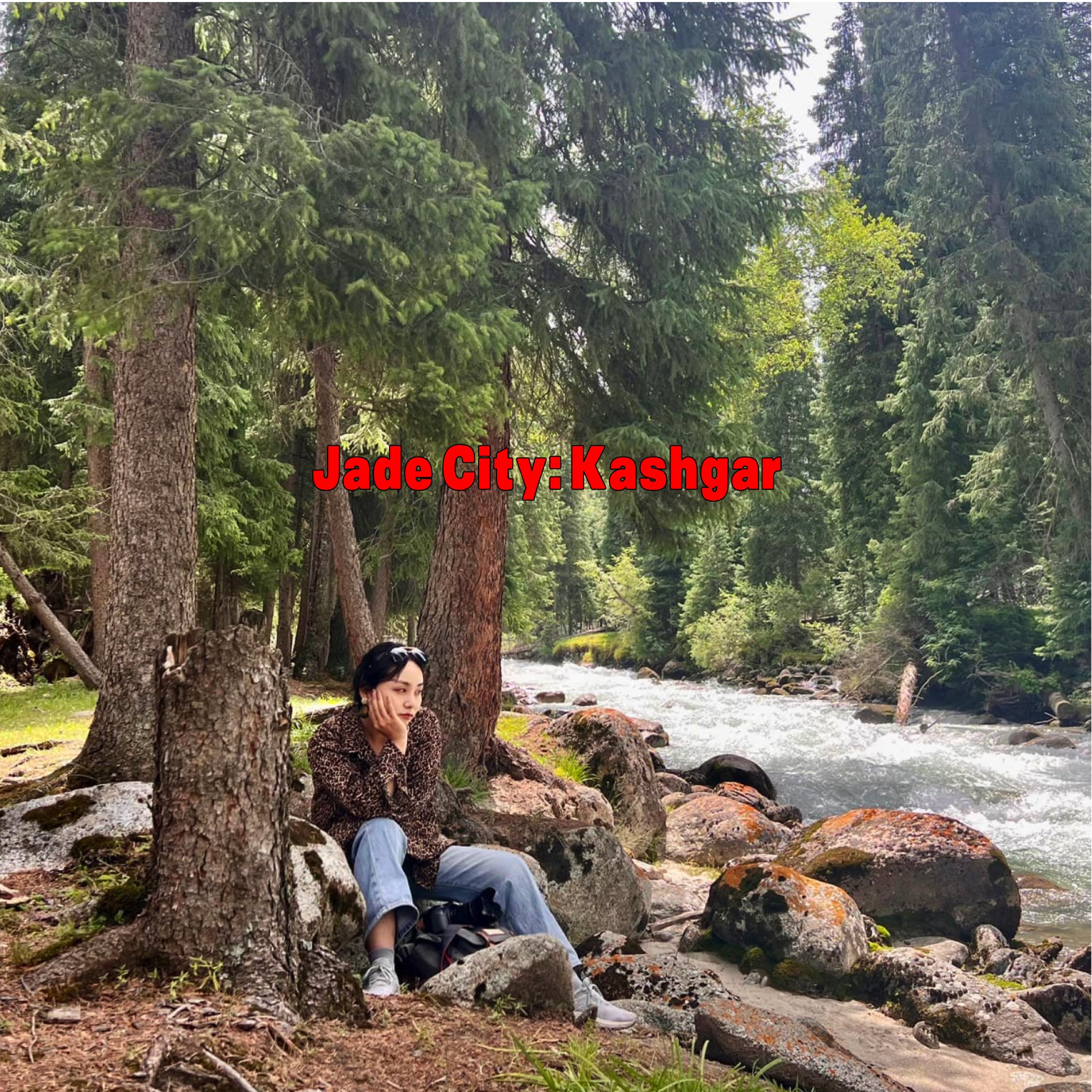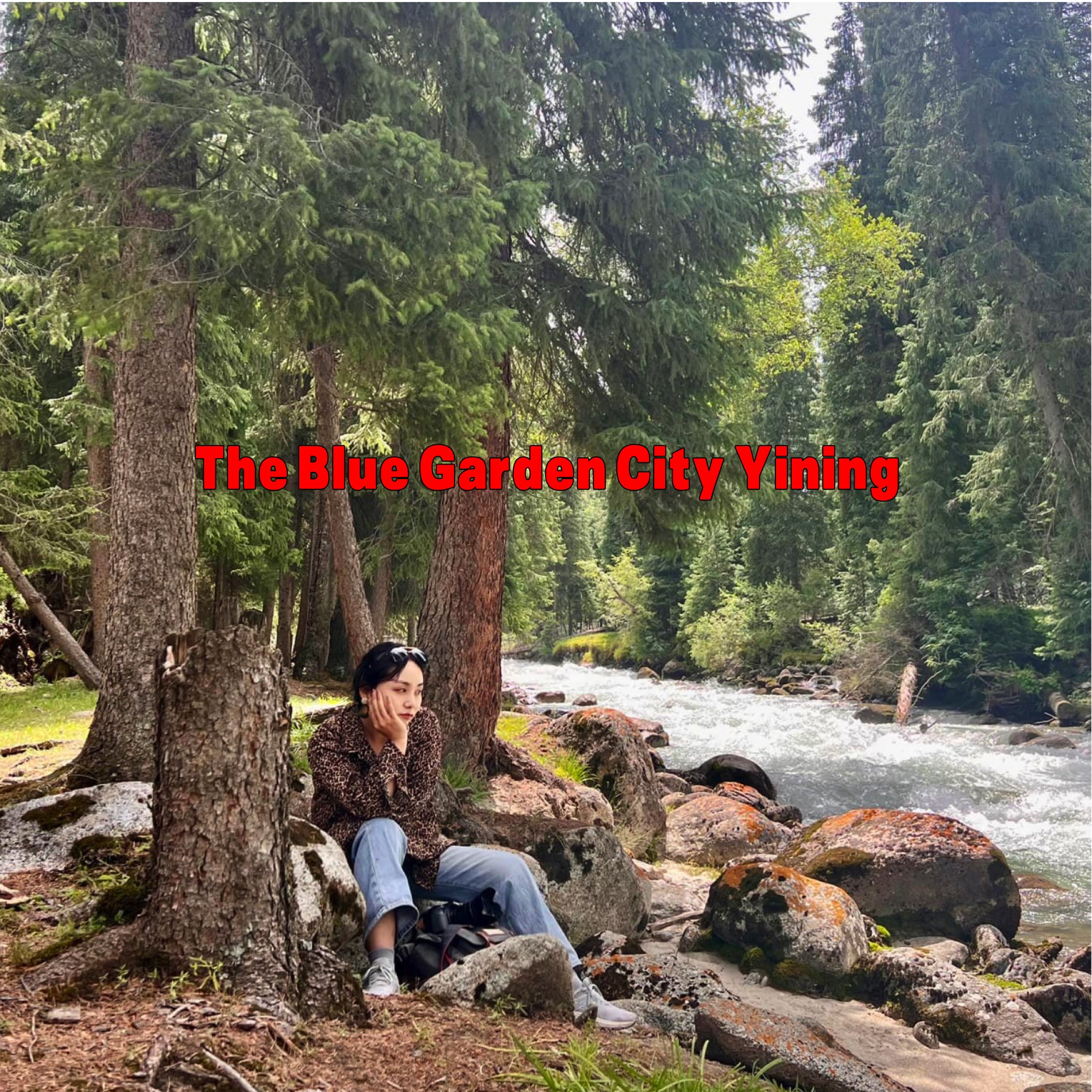My City: A Chongqing Story
Nights of Mountain City
Chongqing remains enveloped in the chill of spring, with nights characterized by a pervasive dampness and gloominess. As I am draped in a thick black down jacket, a dark-colored hat, and soft, muted sneakers, I traverse a mosaic of buildings. It feels as though I am journeying deep into the heart of the mountains. Before long, I find myself gasping for breath, with beads of sweat forming on my forehead. Situated in the southwest region of China, amidst the upper reaches of the Yangtze River, Chongqing is home to a staggering 31.914 million residents. Renowned as the “Mountain City,” it earned this moniker due to its rugged, mountainous terrain.
As night falls over Mountain City, vibrant commercial hubs like Jiefangbei and Guanyinqiao burst into life, their streets illuminated by dazzling lights and thronged with animated crowds. Along the highways, traffic surges like a mighty river, pulsating with rhythm, headlights piercing the darkness in a continuous stream reminiscent of stars in the night sky. This ceaseless flow of vehicles sets the city's pulse and rhythm, while stores of every variety stand aglow with vivid lighting, their neon signs flickering incessantly, casting an aura of vitality and prosperity.
In the convenience stores nestled on street corners, shelves brim with a diverse array of goods, meticulously arranged in a staggered fashion. Many of the hawkers traverse the lively streets and alleys, some carrying bamboo baskets on their backs while others balance shoulder poles laden with goods. Amidst this bustling scene, the clang of a hammer striking iron, clear and melodious, pierces through the din of the loudspeakers. It's the unmistakable sound of the sesame candy seller, a rare ancient movement amidst the chaos. Each vendor promotes their unique specialties, ranging from homemade feather dusters and shuttlecocks that evoke nostalgia to delicacies exuding the subtle aroma of soy sauce and spices. Additionally, stalls adorned with seasonal fruits stand illuminated under crimson lights, their produce appearing vibrant and fresh. With ropes tightly held in the hawkers' hands, and balloons dancing above the crowd, their sparkling lights resemble elves searching for their owners.
In the streets and alleys of Mountain City, hot pot restaurants blossom everywhere, becoming a defining feature of the urban landscape. Each establishment bustles with lively patrons, the air rich with the aroma of simmering red broth, infused with a blend of chili and oils. Families and friends gather around the steaming pots, cooking their favorite ingredients to perfection. The warmth radiating from the pots wafts towards the windows, creating a delicate mist on the cool glass surfaces, while the interplay of light forms a captivating tableau, evoking the enchanting colors of Mountain City's nocturnal charm.
In the bustling back kitchen of a restaurant, the cacophony of pots and pans fills the air as cooks stir-fry in iron pots with iron spoons, while the chef's assistants skillfully prepare ingredients, and dishwashers diligently scrub utensils. Amidst this orchestrated chaos, a waitress, clad in a red coat and black pants, carefully navigates the cold stairs, balancing a heavy plate in her hands. Each step seems to bear the weight of immense responsibility and exhaustion, and upon reaching the corner, she releases a long, weary sigh. Nonetheless, she perseveres, continuing on to the rear kitchen, retrieving plates laden with freshly prepared dishes, and then retracing her steps, shouldering the weight of her responsibilities as she continues to navigate the rush of the restaurant's operations.
Entering a dilapidated building, one is immediately struck by a pervasive sense of mold and dampness. The sound of footsteps reverberates through the maze-like corridors, barely illuminated by dim light seeping in. Abandoned couches and chairs clutter the floors, while the ground level serves as a playground for scurrying rats. The walls, bare from years of neglect, recount tales of age and wear.
As one navigates through the vegetable-laden corridors and steps onto the open-air balcony, a breathtaking nocturnal vista of Mountain City unfolds. The light rail winds through vibrant commercial districts and tranquil residential areas, resembling crystalline veins coursing through the urban landscape. Spanning over the majestic Jialing and Yangtze Rivers, it glides with grace toward the harbor, symbolizing the journey homeward. Along the Yangtze, a cruise ship leisurely meanders, leaving a shimmering trail upon the water’s surface, reflecting the ethereal cityscape. Above, ropeways offer travelers panoramic glimpses of Mountain City’s nocturnal allure.
In this space, where echoes of the past mingle with the pulse of the present, I discern the passage of time and the vibrancy of life. Within every corner of the city, myriad stories and possibilities lie concealed, waiting to be unearthed.
Within this building resides a retired employee who generously shares its history with me. She recounts how it was initially erected for a shipping company, boasting the architectural appearance of the bow of a colossal ship. Two years ago, she has invested 400,000 yuan to acquire a small 40-square-meter dwelling, subsequently pouring an additional 100,000 yuan into its renovation. Now, as the government prepares to expropriate the building, she anticipates receiving approximately 1.05 million yuan in compensation. Her eyes gleam with anticipation.
The old woman becomes the focal point of attention as other neighbors envy her luck. They have lived here for decades, waiting for the expropriation to come. They find themselves trapped by Chongqing's high housing prices, which are beginning to trend downward, and the inventory of new homes is growing, making it increasingly difficult to sell second-hand homes. As our conversation progresses, her demeanor grows somber. This community holds her memories of youth, her work experience, her own independence. She has grown accustomed to everything here, from the neighborhood to the community. Now, facing the prospect of relocating to her children's home across the Yangtze River, she dreads potential family conflicts that might ensue.
In front of the building stands the Raffles, resembling a massive and imposing sail, completed in 2019. Behind the Raffles, a wholesale market has thrived for decades. Around 4:30 p.m., as the shutter doors slowly close, the once vibrant atmosphere of the wholesale market abruptly dissipates, replaced by stark silence. Porters transform into solitary figures in the night, laboriously hauling heavy goods onto waiting trucks. For those trucks parked in remote areas, porters must shoulder the burden, navigating steep and lengthy steps. In a secluded corner of the market, cleaners move with purpose, dragging cumbersome hoses snaking across the ground, diligently scrubbing every inch clean. Just around the corner, a barbecue stall owner, ingredients in hand, bends over his workstation, fully engrossed in preparing his ingredients.
Walking through the vibrant business district, traversing the mottled underground walkways and winding footbridges, I find myself amidst several old neighborhoods. The plaza resonates with the joyful laughter of children and the lively rhythm of pop music. Beneath an incandescent lamp, a skilled tailor meticulously repairs garments with precision. Inside the barbershop, patrons gather, engaged in cheerful conversations about familial affairs. Residential buildings overlook a braised food stall, its owner momentarily pausing from busyness to hastily grab a bowl for dinner. Gradually, his expression shifts, his gaze becoming distant, as if grappling with internal turmoil. In the narrow corridors, a delivery boy in a yellow jacket darts like the wind, ensuring timely delivery to customers' doorsteps; any delay would incur penalties.
I’ve walked these paths countless times, each step tinged with familiarity yet never quite the same. However, what remains etched in my memory is the steep and winding staircase, akin to a hidden passage leading straight to a corner of my heart. Gazing further towards the Yangtze River, a majestic tree stands tall amidst two towering buildings. The streetlights cast a soft glow, delicately outlining the contours of the emerald green leaves and illuminating a corner of the nearby house. A couple sits in front of their home, the woman gently bowing her head, her feet immersed in a plastic bucket of water, while the man finishes tidying up the kitchen, his apron still adorned. They sit quietly together, hands folded in their laps, in a moment of serene companionship.
At ten o'clock in the evening, the lights of Mountain City gradually dim, and the colorful artificial glow fades away. In the hazy moonlight, the shadows on the streets blur, and the buildings seem to grow quieter as night descends. Darkness envelops the scene like a flood, invading the dreamlike atmosphere. Outside the window, intermittent clanging sounds echo from the construction site, serving as a reminder that life continues to move forward tirelessly.

